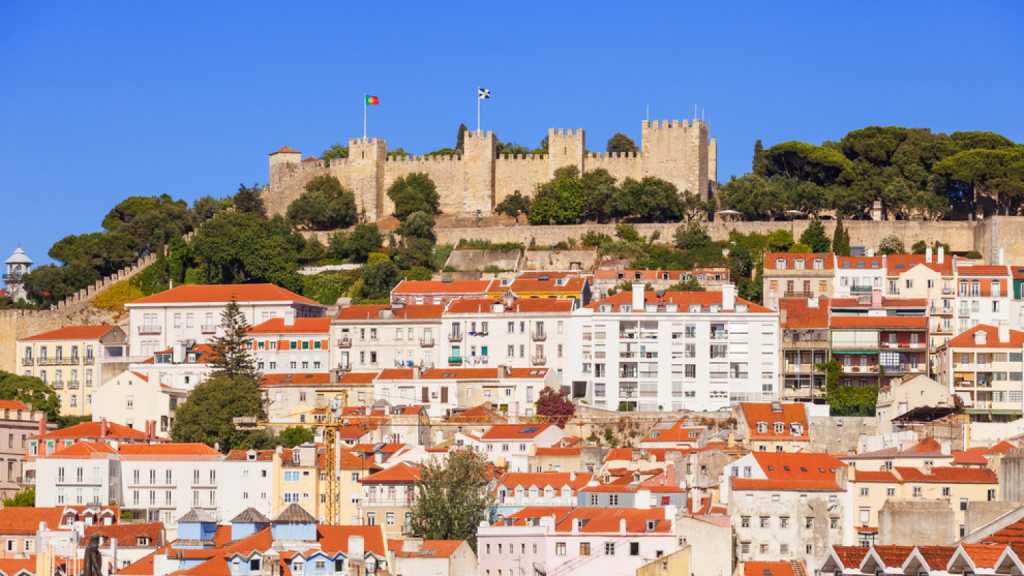
Castelo de São Jorge
Monument & HeritageStanding majestically above Lisbon, this Moorish castle was the ancient seat of power for over 400 years. This imposing fortification was constructed in the mid-11th century along with its towers with its solid yet elegant design. Much of the current…
- Alfama & Castelo
- Castle & Fortress
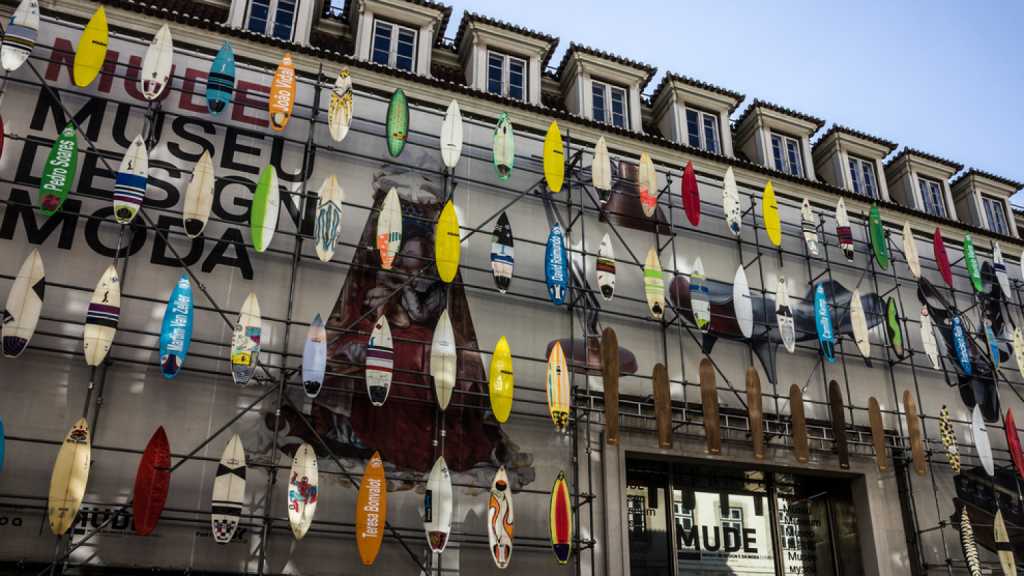
MUDE - Museu do Design e da Moda
MuseumMUDE, the museum of design and fashion in Lisbon, is considered one of the leading museums of 20th century design in the world and one of the best collections of its kind in Europe. The dazzling collection includes works from 230 designers from all…
- Baixa
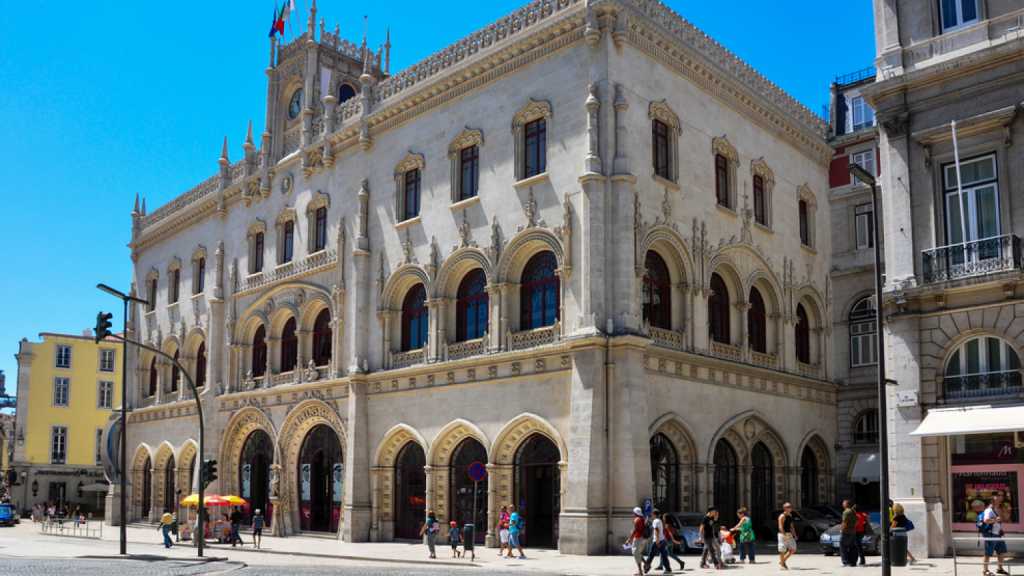
Estação do Rossio
Monument & HeritageLocated in Rossio Square, this railway station was designed by the Portuguese architect Jose Luis Monteiro between 1886 and 1887. It is thought to be one of the most important structures from the 19th century in Portugal. …
- Baixa
- Monument & Heritage
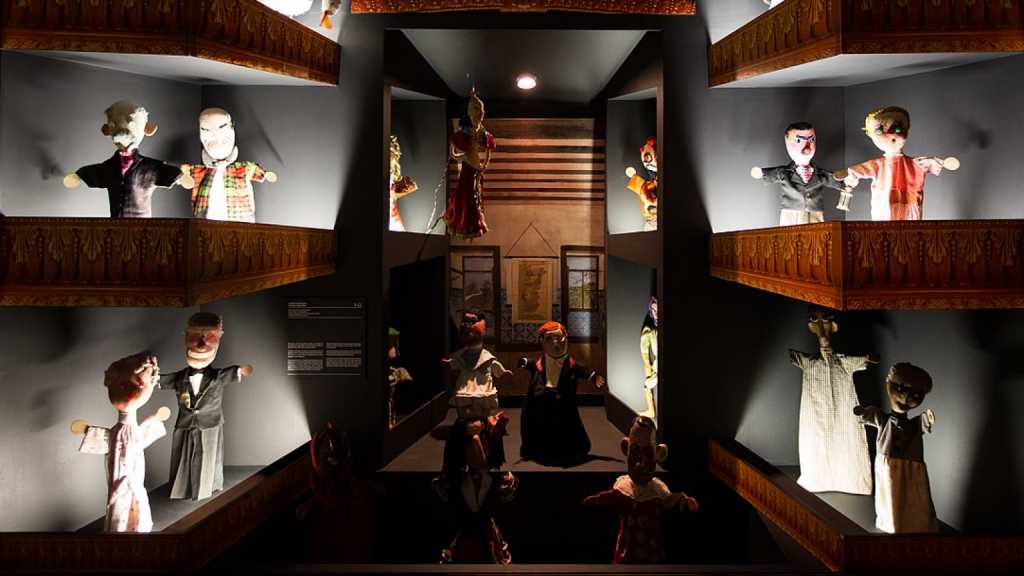
Museu da Marioneta
MuseumPuppets are truly fascinating. Extremely detailed and imaginative figures, they are brought to life with only a few strings and the talented hand of a puppeteer. The Museu da Marioneta is the first museum in Portugal dedicated to the art and history…
- Santos & Alcântara
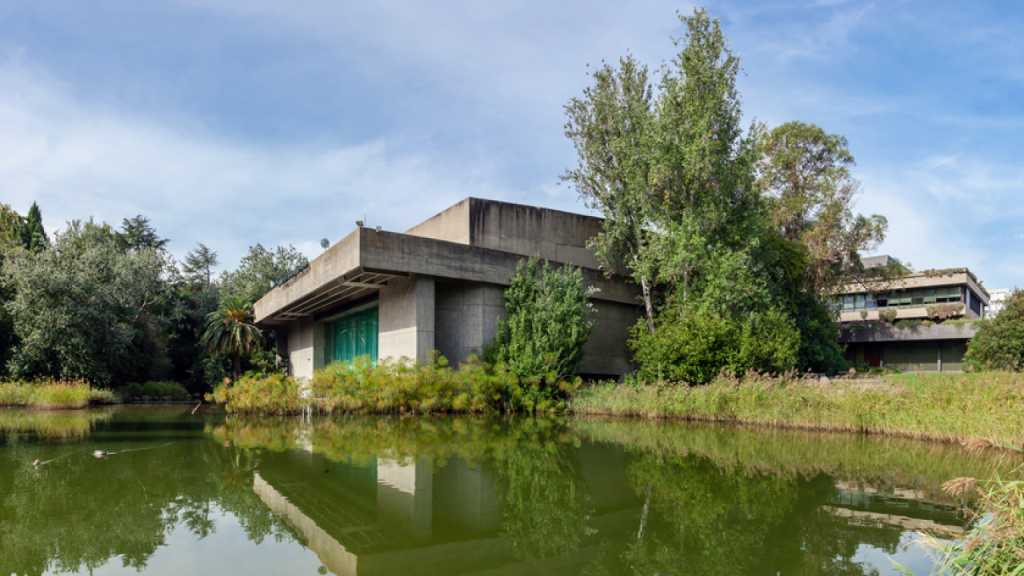
Jardim Gulbenkian
Green SpaceBelonging to the Calouste Gulbenkian Foundation, the Gulbenkian Garden was designed by António Viana Barreto in 1957 with the collaboration of Gonçalo Ribeiro Teles and was built in the 1960s.…
- São Sebastião
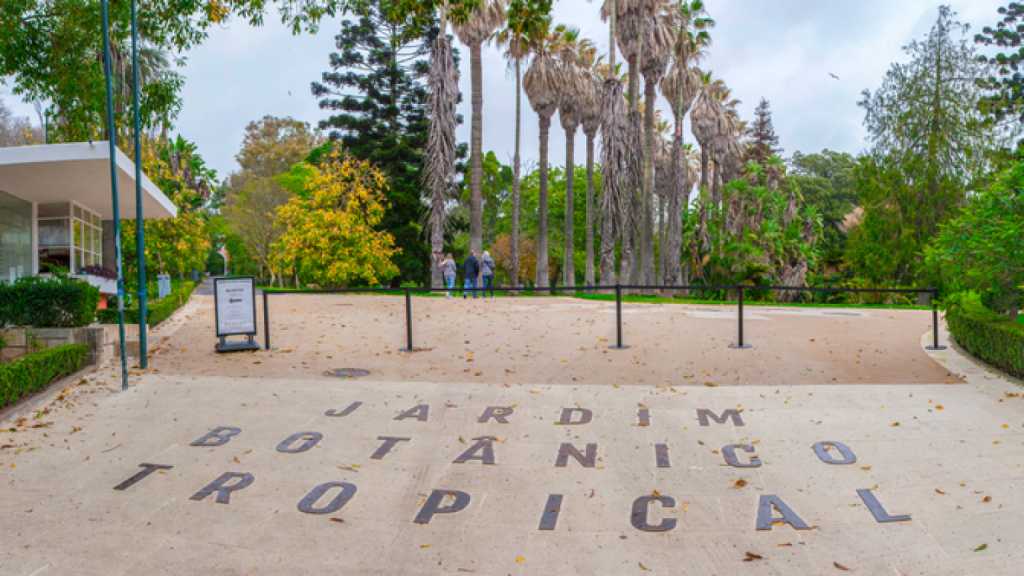
Jardim Botânico Tropical
Green SpaceWhen you enter this pleasant retreat, you will feel like you are entering a rainforest. This garden is full of tropical species, from palm trees to dragon trees native to the Canary Islands and Madeira.…
- Belém
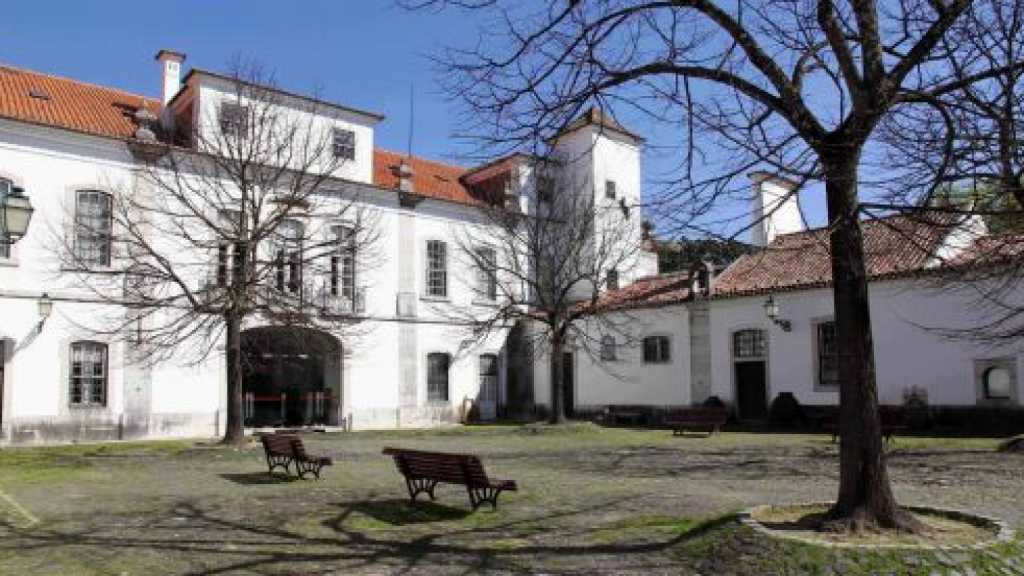
Museu da Cidade
MuseumThe ideal place to get a crash course in the history of Lisbon, this city museum tells the story of the city through paintings, models, period furniture, artefacts, tiles and much more. The collections go all the way back to prehistoric times and all…
- Campo Grande & Alvalade
- Green Space
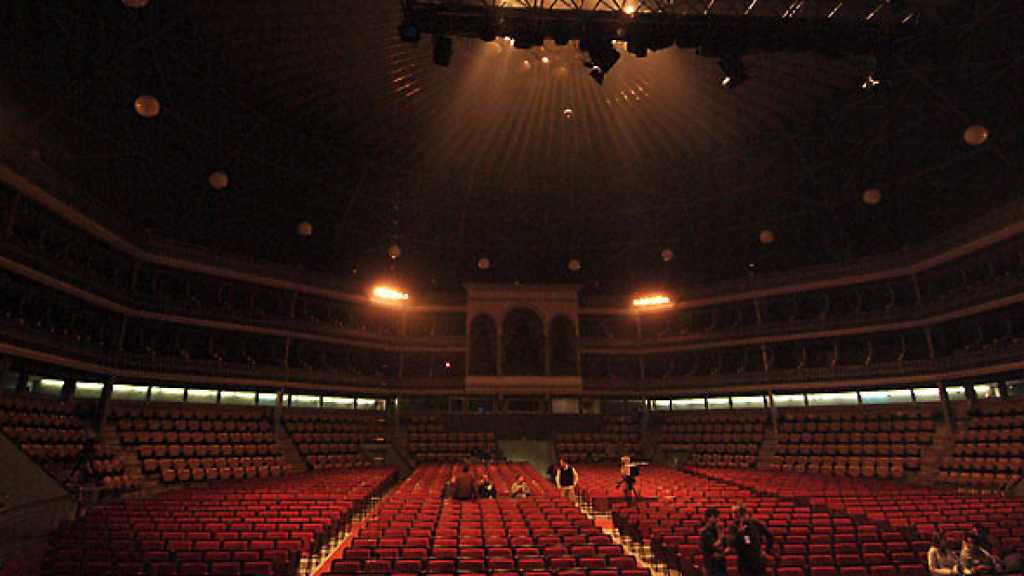
Coliseu dos Recreios
Spectacle RoomThe Coliseum of Lisbon is a concert hall and performance venue in the Portuguese capital, where you can see a wide range of exciting shows and musical productions throughout the year. A historic landmark, it was inaugurated in 1890 and its…
- Avenida & Marquês
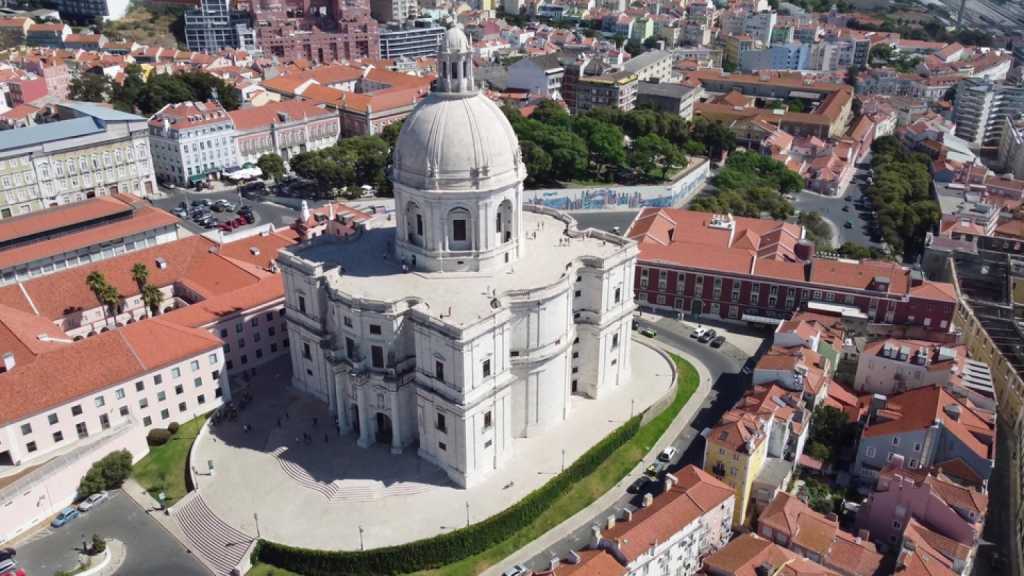
Panteão Nacional
Monument & HeritageCrowned with an elegant dome providing a 360 degree view of the city and the river, the building evokes Greek architectural inspirations. The interior is decorated in slabs of multi-coloured marble in a dazzling symmetrical design. The style of the…
- Alfama & Castelo
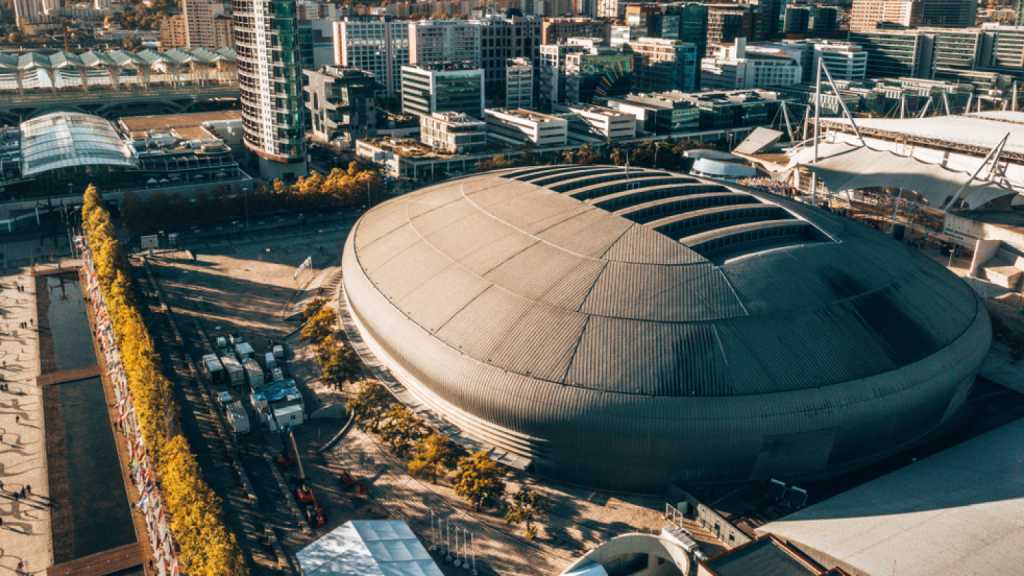
Altice Arena
Spectacle RoomPreviously known as Pavilhão Atlântico and MEO Arena, the Altice Arena is the largest pavilion of shows in Portugal, and can receive up to 20,000 people. It was built in Parque das Nações at Expo98, with the designation of the Utopia Pavilion,…
- Parque das Nações
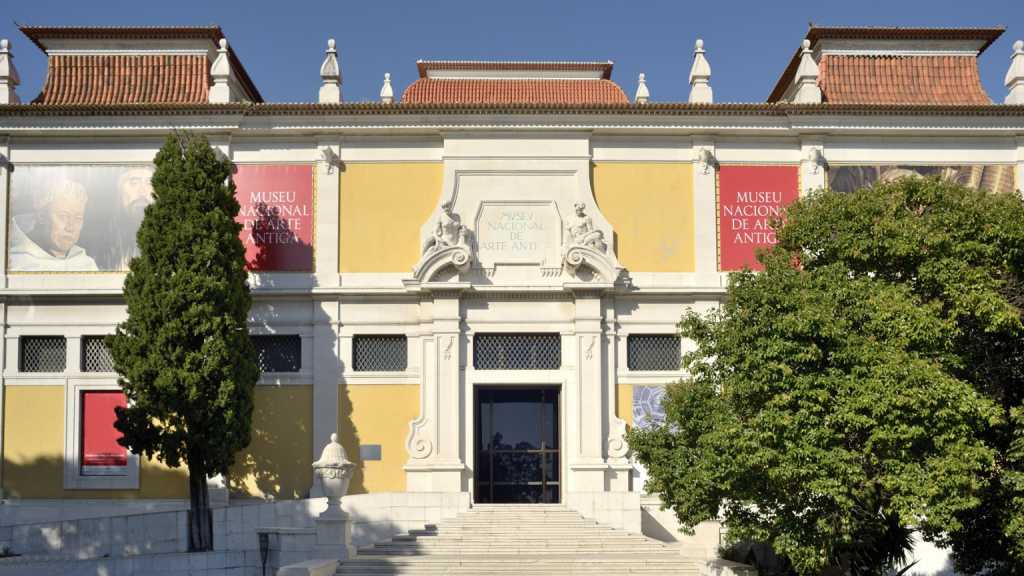
Museu Nacional de Arte Antiga
MuseumThe Museu Nacional de Arte Antiga is the most important museum of art from the 12th to the 19th centuries in Portugal, hosting the most relevant public collection of Portuguese and foreign masterpieces. The museum is located in a magnificent palace…
- Santos & Alcântara
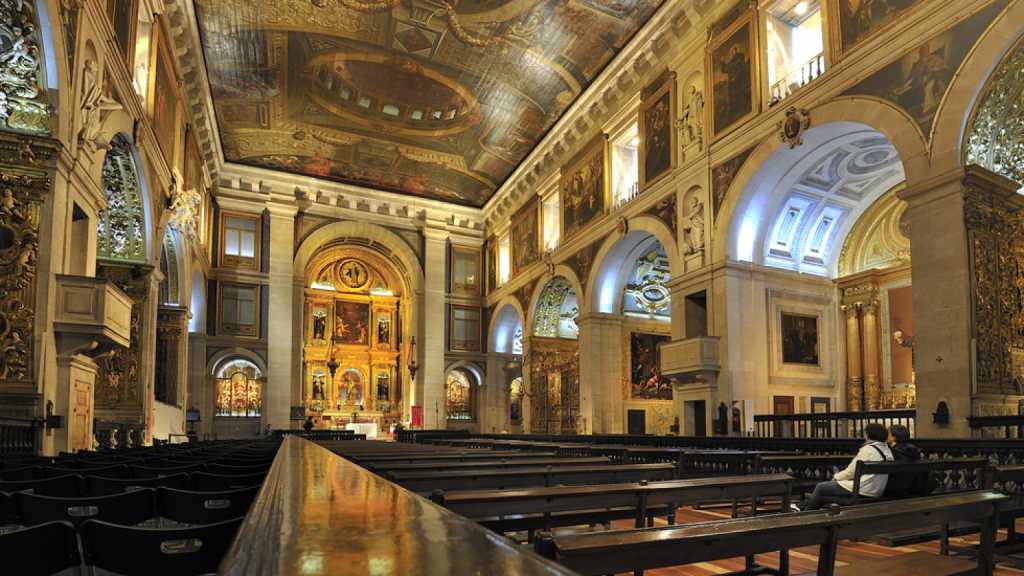
Igreja São Roque
Monument & HeritageWhen the earthquake hit Lisbon in 1755, this was one of the few buildings that left practically unharmed. Built in the 16th century, it was the first Jesuit church in Lisbon designed specifically for preaching, with a large auditorium-style interior…
- Bairro Alto & Chiado
- Religious

Oceanário
MuseumUnderneath the ocean there lies an incredibly diverse wonderland of colourful creatures - you can learn all about them at this excellent oceanarium, which was designed by the American architect Peter Chermayeff. This showcase of underwater life…
- Parque das Nações
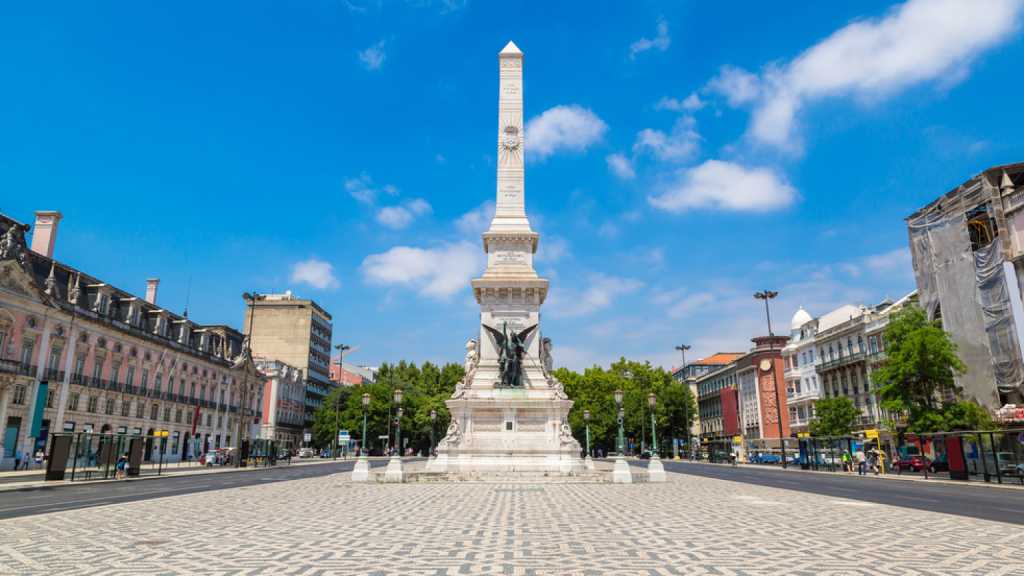
Praça dos Restauradores
Place of InterestDedicated to the restoration of the independence of Portugal in 1640, Praça dos Restauradores is one of the most interesting public squares in the city. …
- Avenida & Marquês
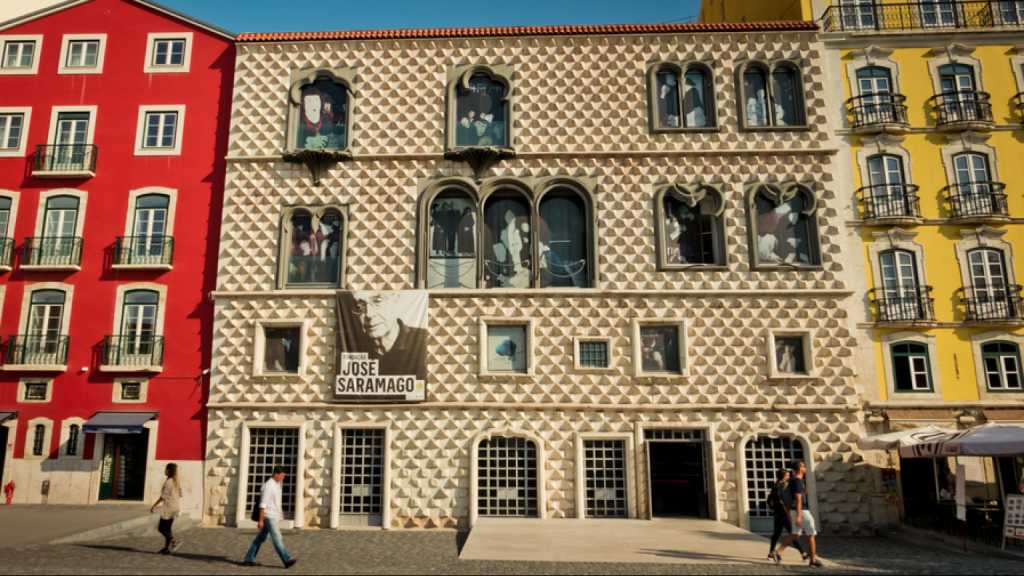
Fundação José Saramago
MuseumJosé Saramago, who lived from 1922-2010, is one of the most famous writers in Portugal and this elegant casa contains a small museum that is dedicated to him. …
- Baixa
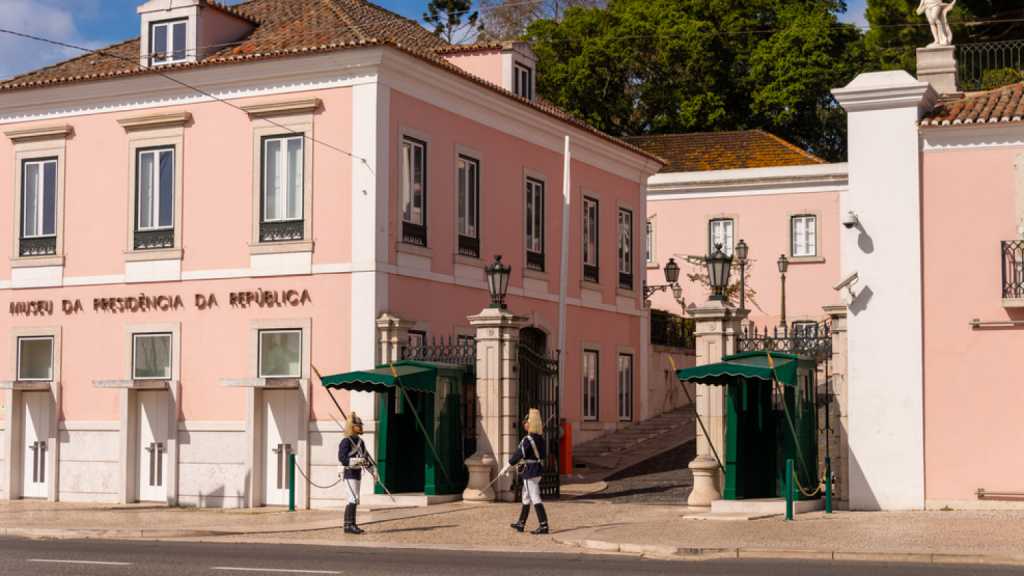
Palácio de Belém
Monument & HeritageOnce the palace of Kings, the Belém Palace is now National Monument and also the seat of the Presidency of the Portuguese Republic, as well as the official residence of the President of the Republic.…
- Belém
- Museum
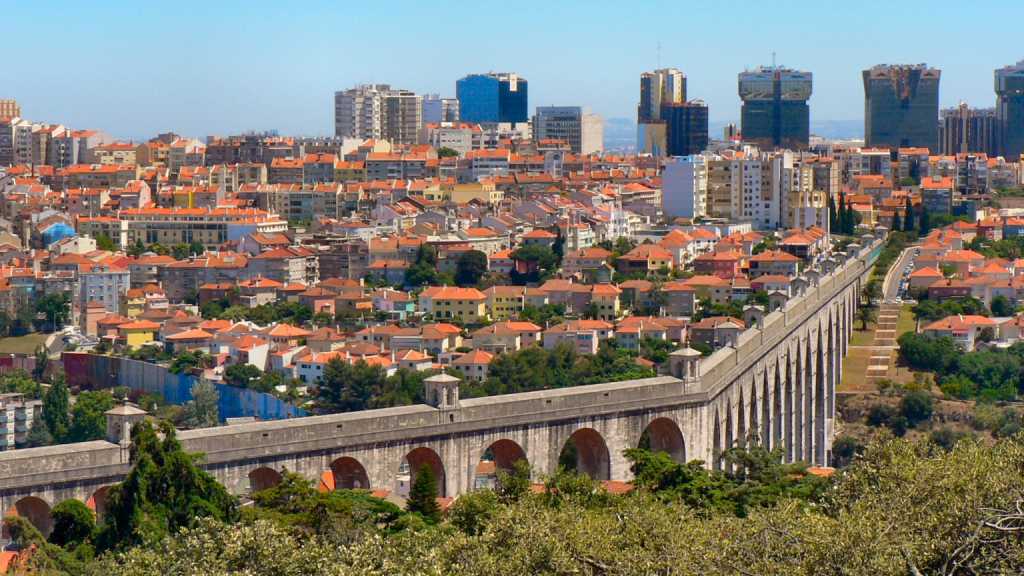
Aqueduto das Águas Livres
Place of InterestThis historic aqueduct is one of the most impressive examples of 18th century engineering in Portugal. It stretches over 18 km and is part of a larger network of canals that extends approximately 58 km. …
- Campo de Ourique & Campolide
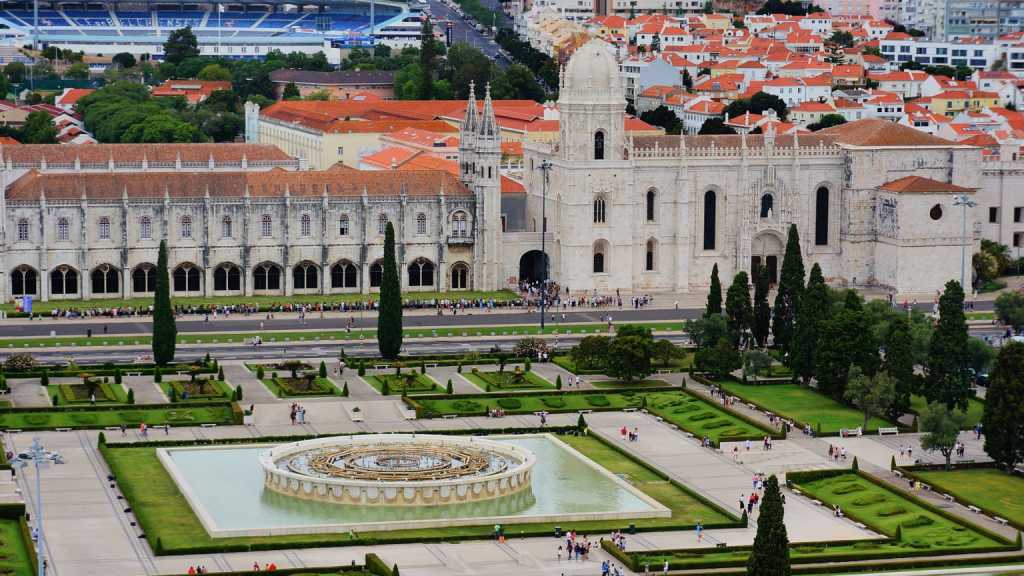
Mosteiro dos Jerónimos
Monument & HeritageThe ornate and richly carved columns of the Jeronimos Monastery reach up to scrape the blue sky, the sunlight shining on each facet of the many figures within its gables and pinnacles. …
- Belém
- Museum
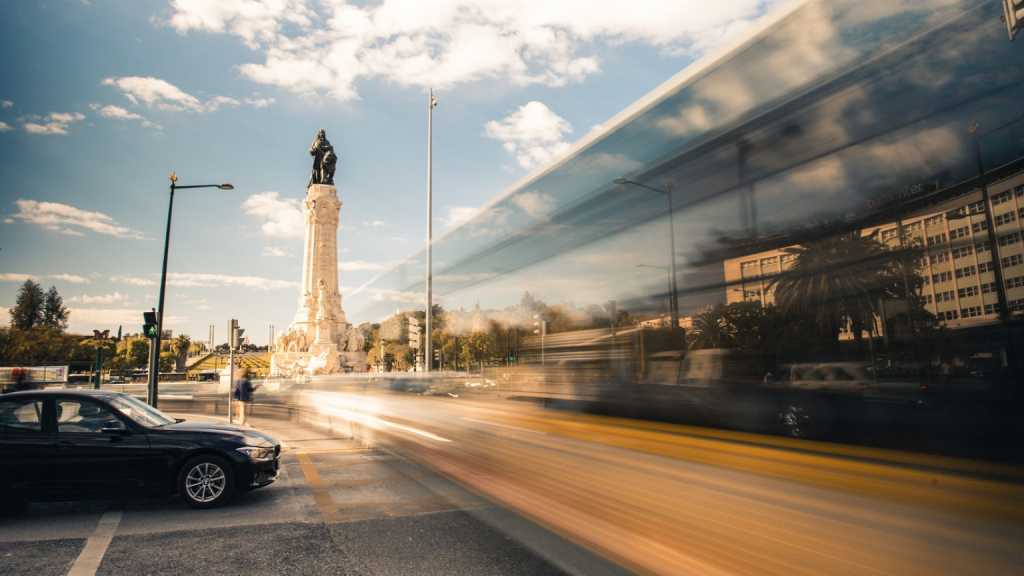
Avenida da Liberdade
Place of InterestLiberty Avenue is one of the most important streets in the center of Lisbon, a wide tree-lined boulevard, with about 1.5 km long, with several traffic lanes and walks decorated with gardens and Portuguese sidewalk. This is the grandest avenue in the…
- Avenida & Marquês
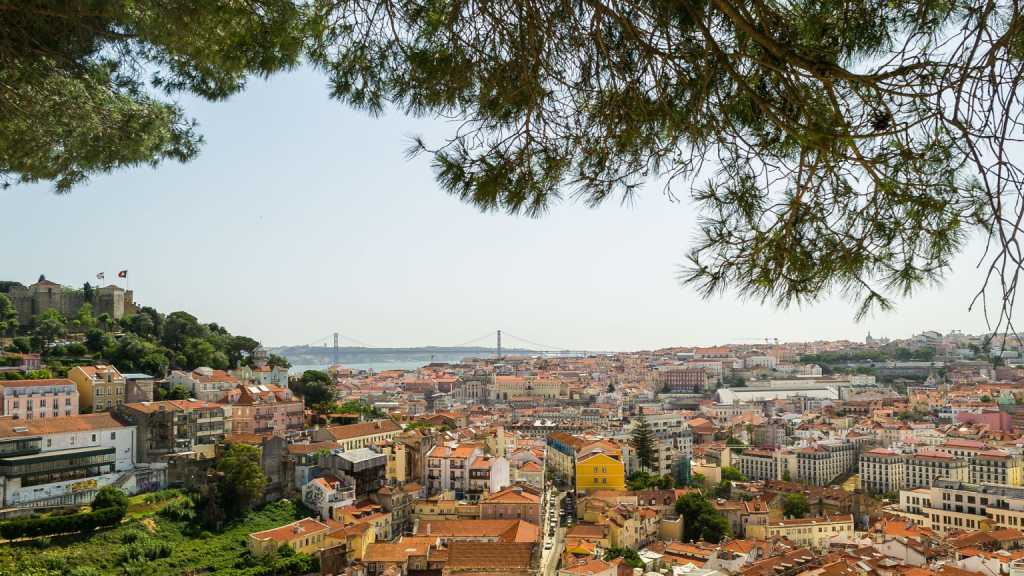
Miradouro da Graça
ViewpointThe official name for this lookout point is Sophia de Mello Breyner Andresen, a poet who was often seen sitting in this spot, admiring Lisbon and composing her poems. You can even see a bust and plaque here celebrating her life. When you perch at…
- Graça
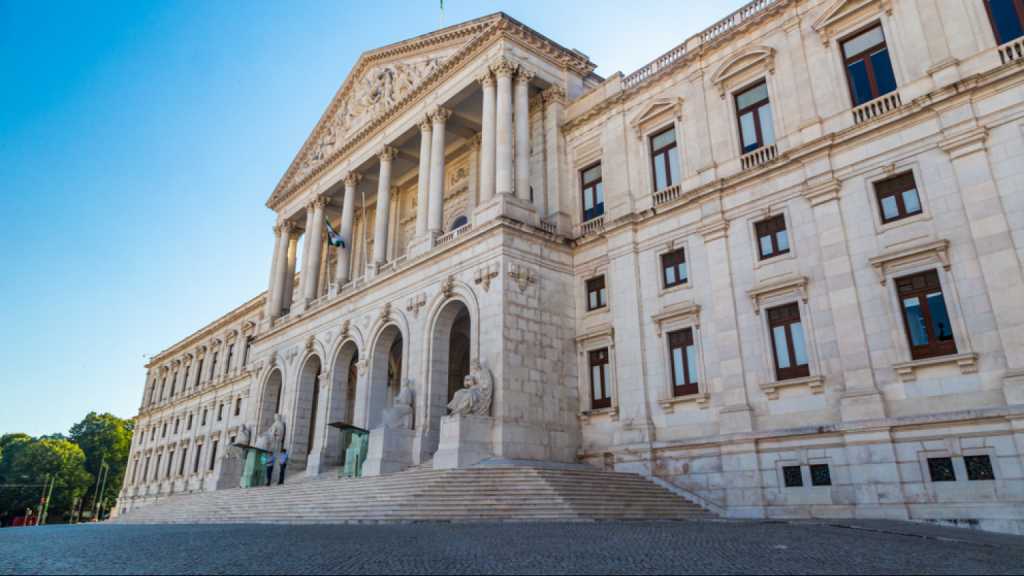
Palácio de São Bento
Monument & HeritageSão Bento Palace is a majestic neoclassical building, seat of the Parliament of Portugal since 1834.…
- Estrela
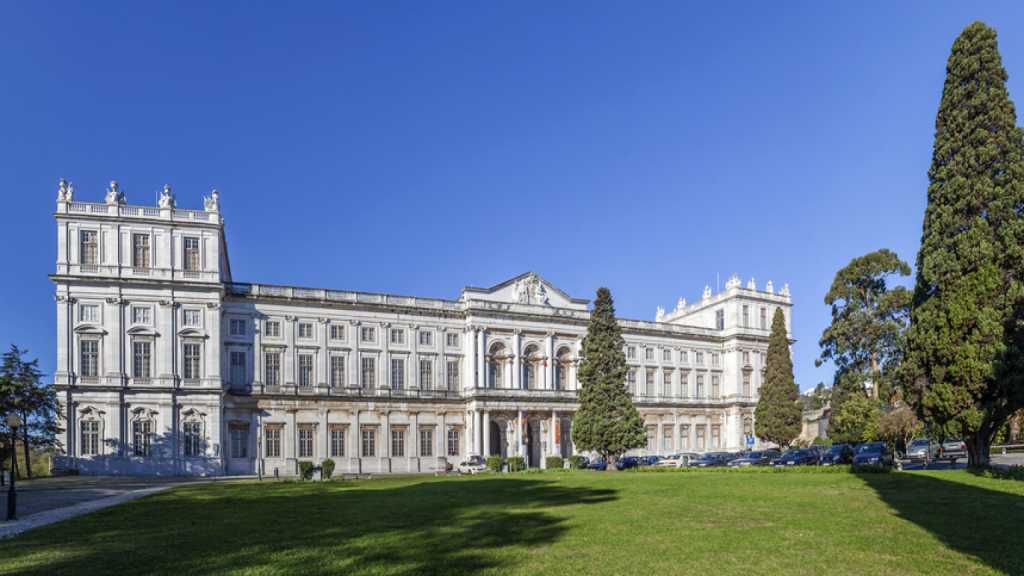
Palácio Nacional da Ajuda
Monument & HeritageThis extravagant royal palace is one of the most beautiful romantic buildings in Europe, even though it was never fully completed due to the exile of the royal family to Brazil when the French invaded Portugal. …
- Ajuda
- Museum
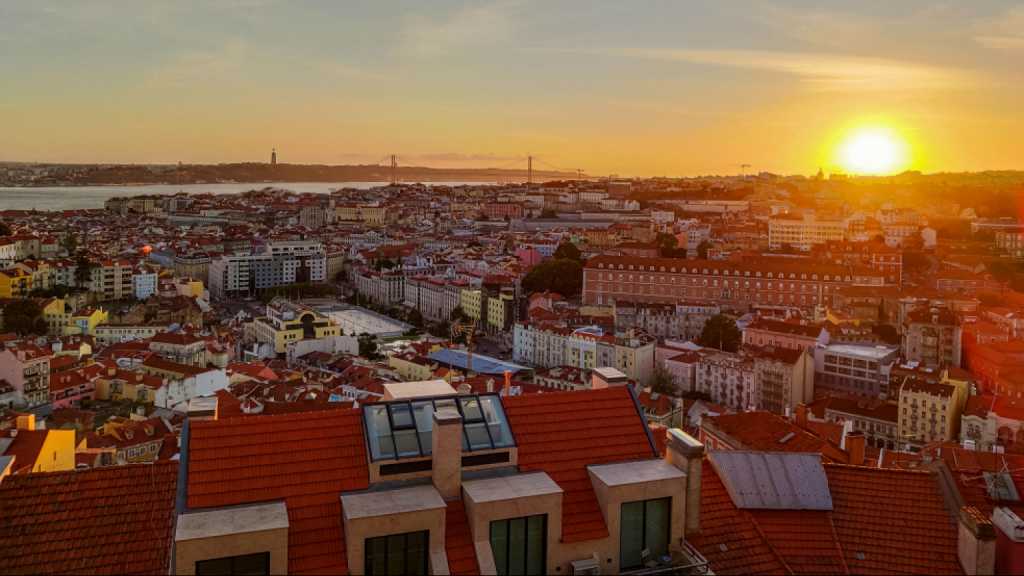
Miradouro da Senhora do Monte
ViewpointSee all of Lisbon spread out beneath you as you breathe in the fresh air at this lofty lookout point. This is the highest viewpoint in the city and the best place to enjoy views of the castle it offers uninterrupted panoramic views all across Lisbon,…
- Graça
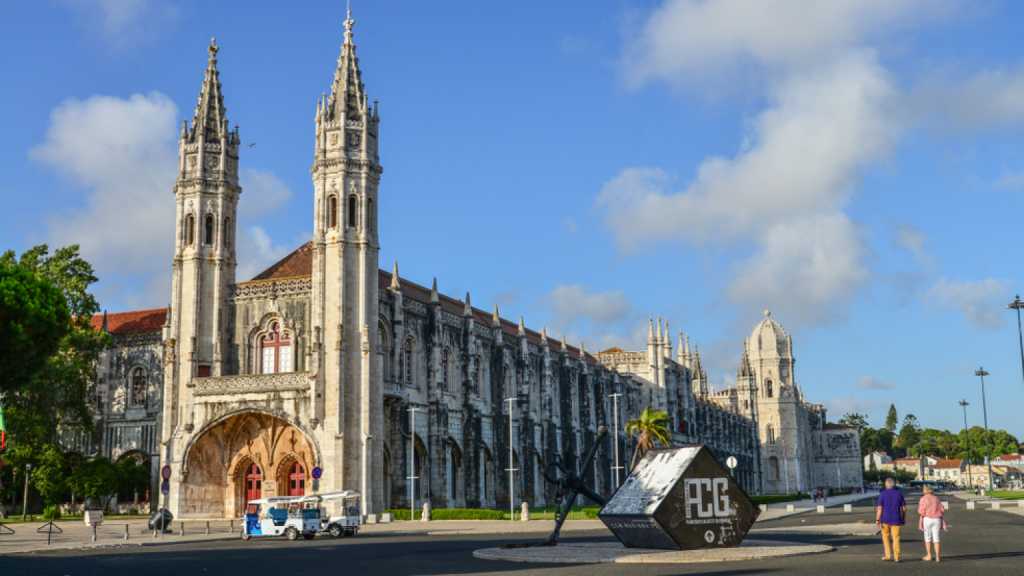
Museu de Marinha
MuseumPortugal has a long and storied maritime history. Portuguese explorers have explored the world by sea for many centuries and have made discoveries in every far-flung corner of the globe. …
- Belém
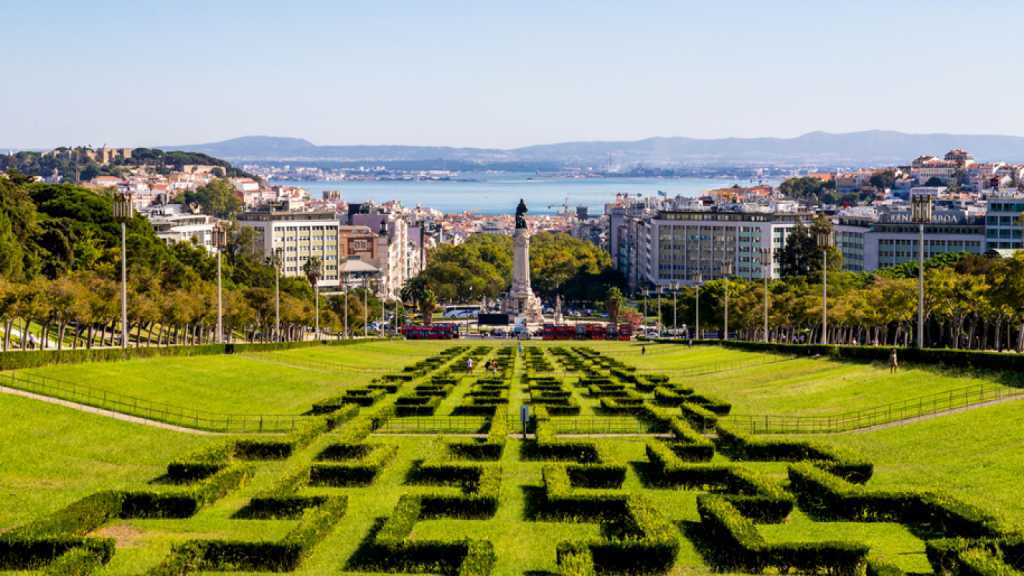
Parque Eduardo VII
Green SpaceOne of the main parks in Lisbon, the Parque Eduardo VII dates back to the 19th century. This large urban oasis was known as the Parque da Liberdade originally, but it is currently named after King Edward VII of the United Kingdom - who visited…
- Avenida & Marquês
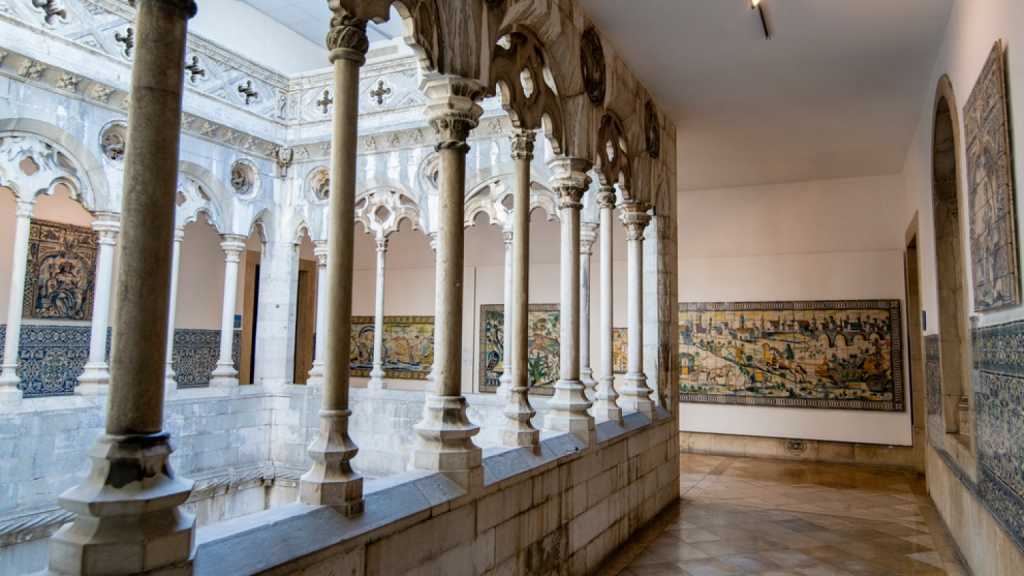
Museu Nacional do Azulejo
MuseumOne of the first things you will notice when you arrive in Lisbon is the gorgeous decorative tiles, decorating the walls, floors and ceilings of many prominent buildings throughout the city. Azulejo is a form of glazed ceramic tile that is used all…
- Xabregas & Marvila

Padrão dos Descobrimentos
Monument & HeritageA solitary landmark in a dramatic location on the banks of the Tagus, this monument evokes the overseas expansion of Portugal throughout the ages. This elegant sculpture has a poetic name - the Monument to the Discoveries - and a lot of historic…
- Belém
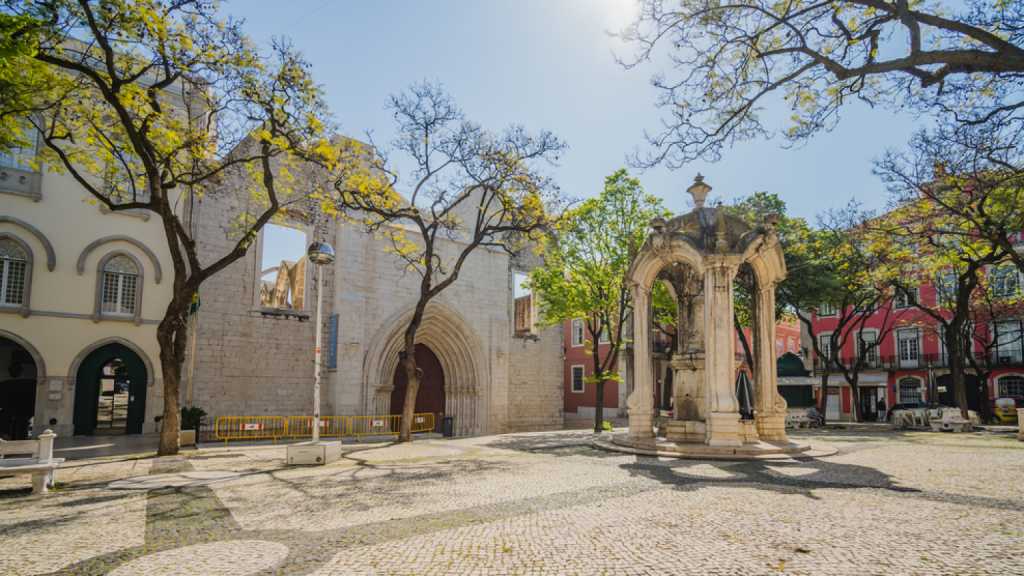
Largo do Carmo
Place of InterestA lovely square in downtown Lisbon, Largo do Carmo is famous for its calm and laid back atmosphere. It offers a gorgeous view of the city, as well as an interesting museum and a historic elevator right in the heart of Lisbon. …
- Bairro Alto & Chiado
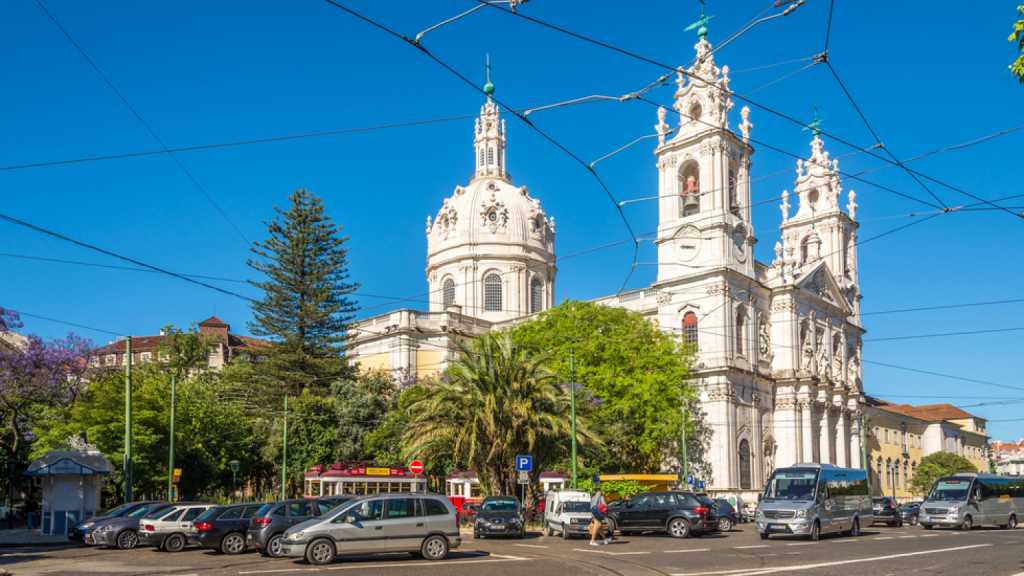
Basílica da Estrela
Monument & HeritageThe Basilica da Estrela was the first church in the world officially dedicated to the Sacred Heart of Jesus - the physical heart itself representing the love that Jesus had for all humanity. It is one of the most ornate and visually arresting…
- Estrela
- Religious
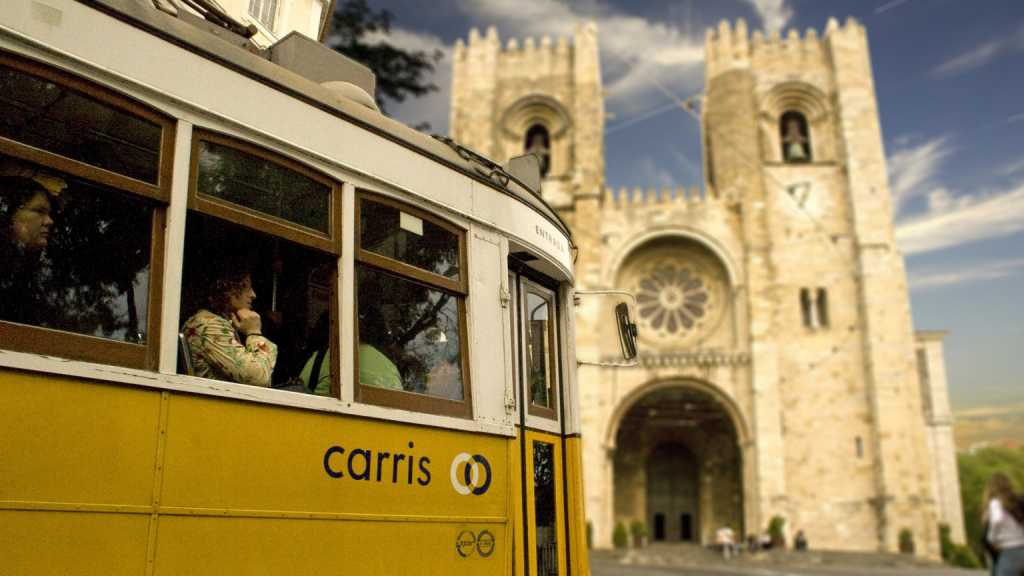
Sé de Lisboa
Monument & HeritageThe Lisbon Cathedral, also known as the Saint Mary Major Patriarchal Cathedral, is Lisbon’s oldest place of worship and an imposing presence within the skyline. This elegant and stately building has stood tall throughout many earthquakes and has…
- Alfama & Castelo
- Religious
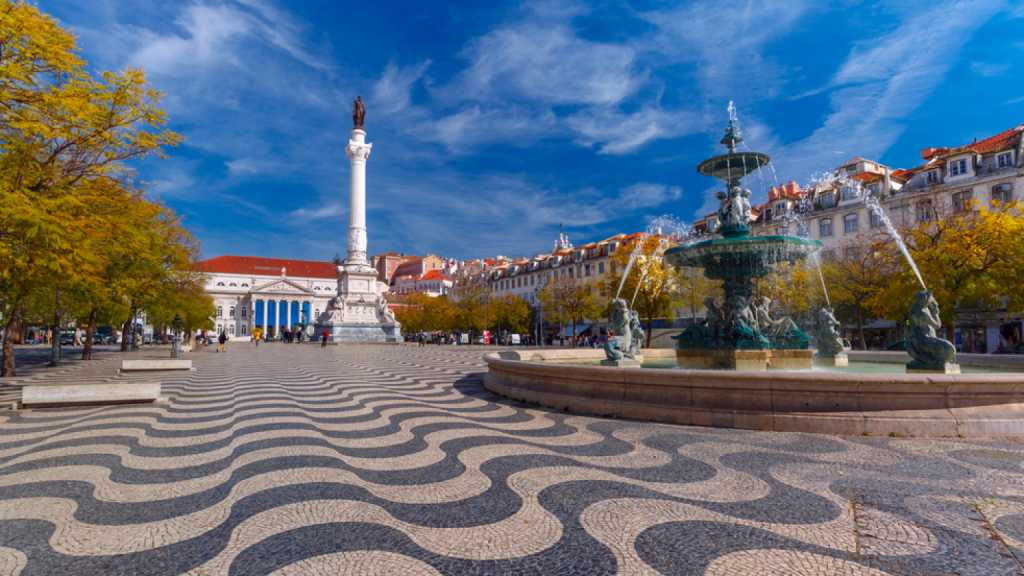
Rossio
Place of InterestAlso known as D. Pedro IV Square, Rossio is a vibrant square in the heart of the city, where the people of Lisbon gather to enjoy a drink, relax and watch people go by. Take a break for a coffee in the famous Art Deco style Cafe Nicola and admire the…
- Baixa
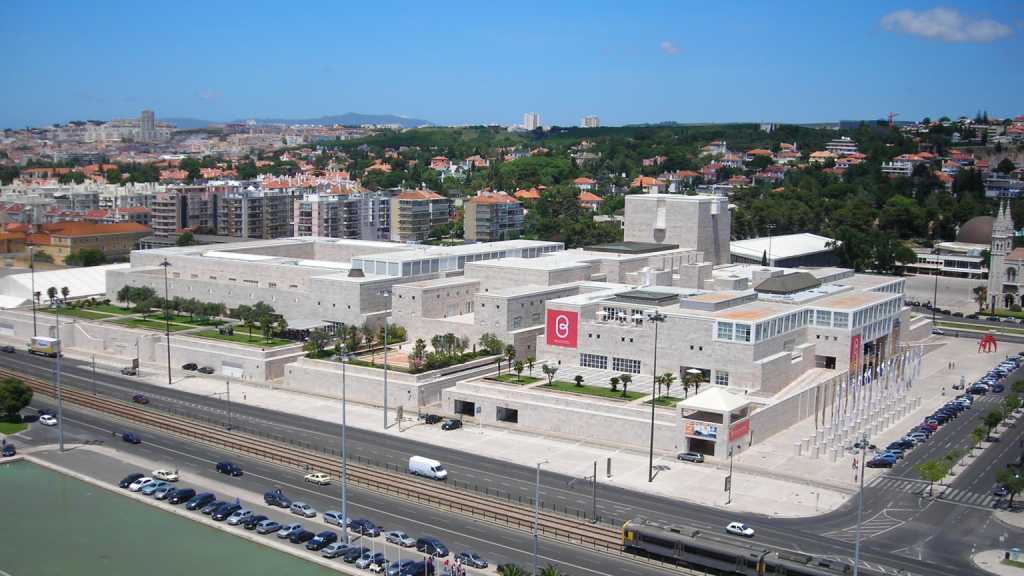
Centro Cultural de Belém
MuseumAlso known as CCB, the Centro Cultural de Belém was built between 1988 and 1992 and inaugurated on August 10, 1993.…
- Belém
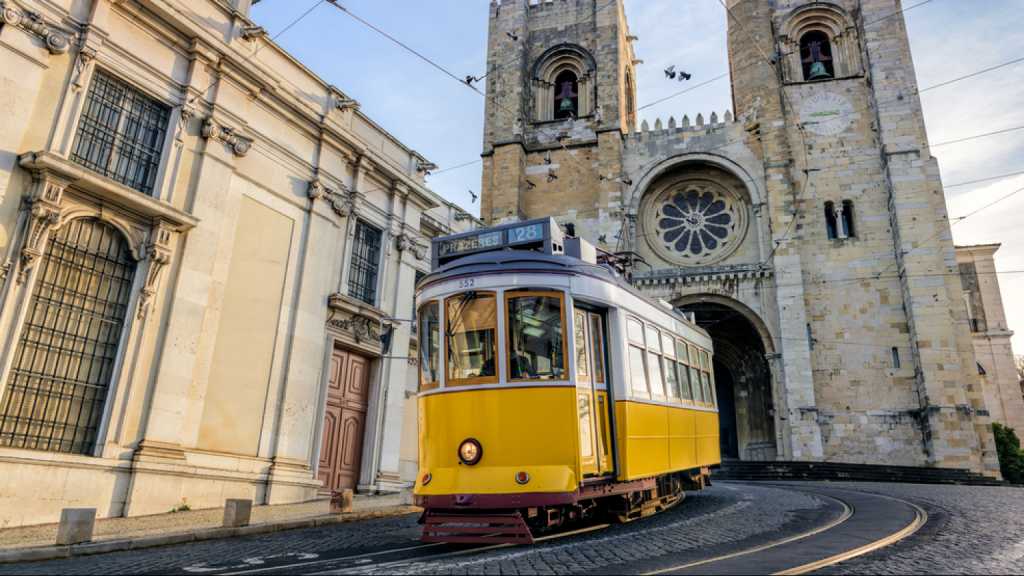
Eléctrico 28
TransportsA trip on Eléctrico 28 (Tram 28) in Lisbon is mandatory. The Yellow, as it is also nicknamed by the locals, is a true ex-libris and one of the best ways to get to know the city. Importing from the United States in 1901, this picturesque transport…
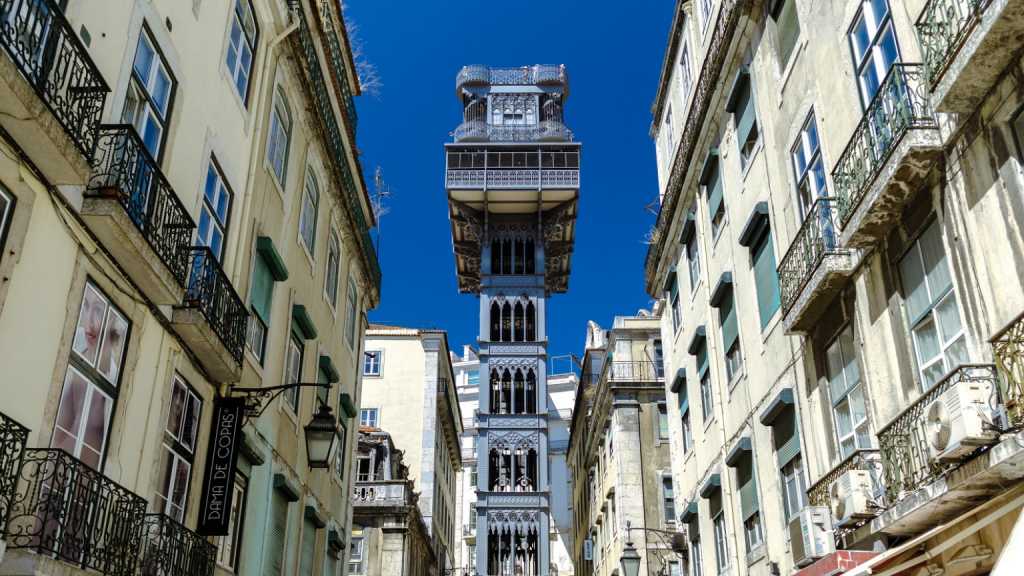
Elevador de Santa Justa
TransportsIf you are looking for something to lift your spirits in Lisbon, this beautiful antique elevator will really give you a boost. Built in the early 20th century, this wrought-iron lift will transport you between the Rua de Santa Justa, in the Baixa,…
- Baixa
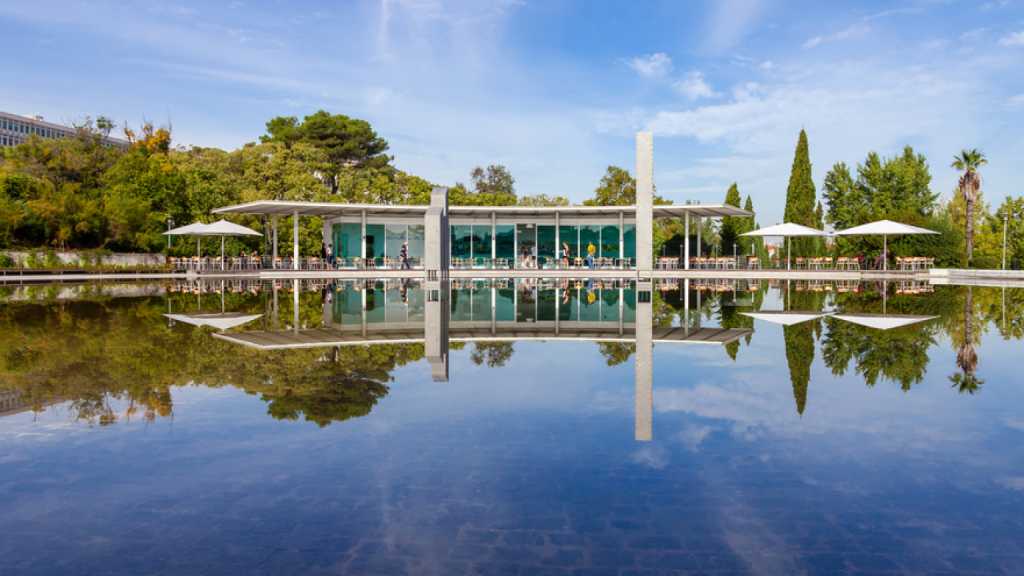
Jardim Amália Rodrigues
Green SpaceA tiny pocket of greenery in the middle of the city, this garden offers a space to reflect in peace while admiring the reflections in the tranquil ponds. It is named after the fado singer Amalia Rodrigues and it is home to the lovely voluptuous…
- São Sebastião
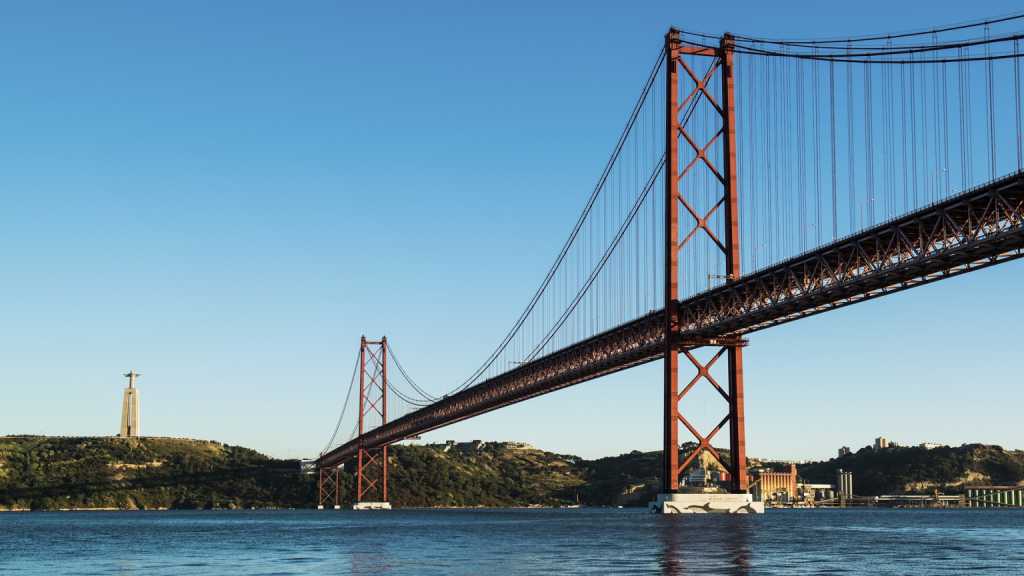
Ponte 25 de Abril
BridgeThe 25th of April Bridge is one of the most iconic landmarks in Lisbon. Its huge red arches span the River Tagus, reminding visitors of the Golden Gate Bridge in San Francisco. …
- Santos & Alcântara
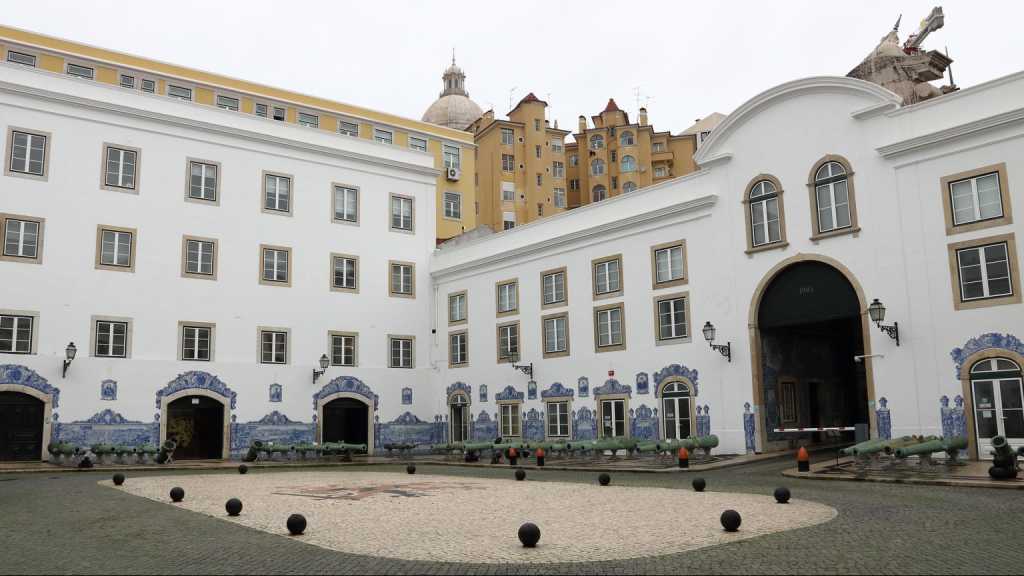
Museu Militar
MuseumThis building by the riverside is home to more than 500 years of military history, displayed throughout 33 exposition rooms. As you explore the exhibits you will find arsenal and military equipment as well as sculptures and paintings depicting…
- Alfama & Castelo
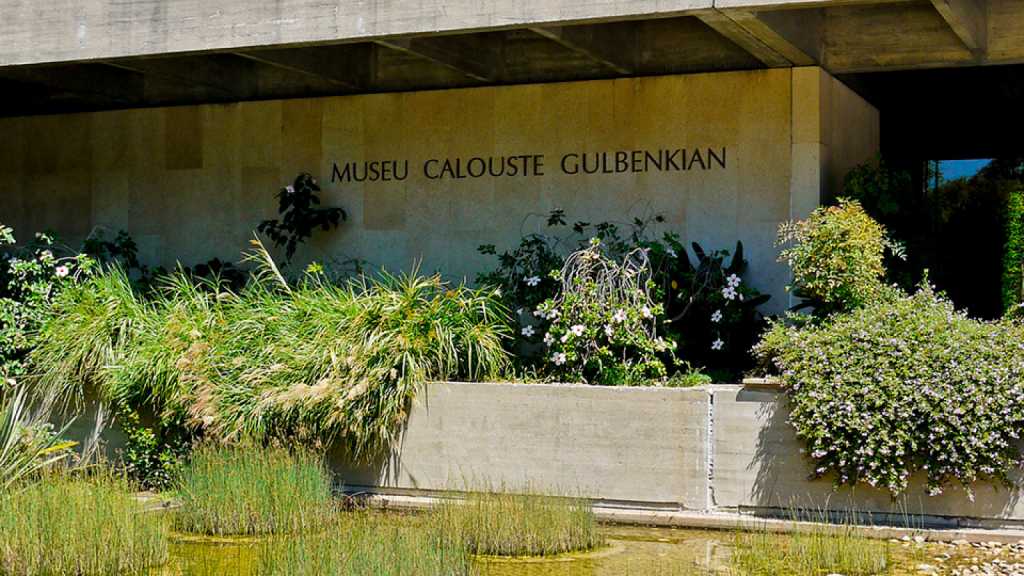
Fundação Calouste Gulbenkian
MuseumCalouste Gulbenkian was a petrol magnate of Armenian origin, who was based in Portugal. He is thought to be the first individual to exploit Iraqi oil and make the petroleum reserves of the Middle East available to the Western World. …
- São Sebastião
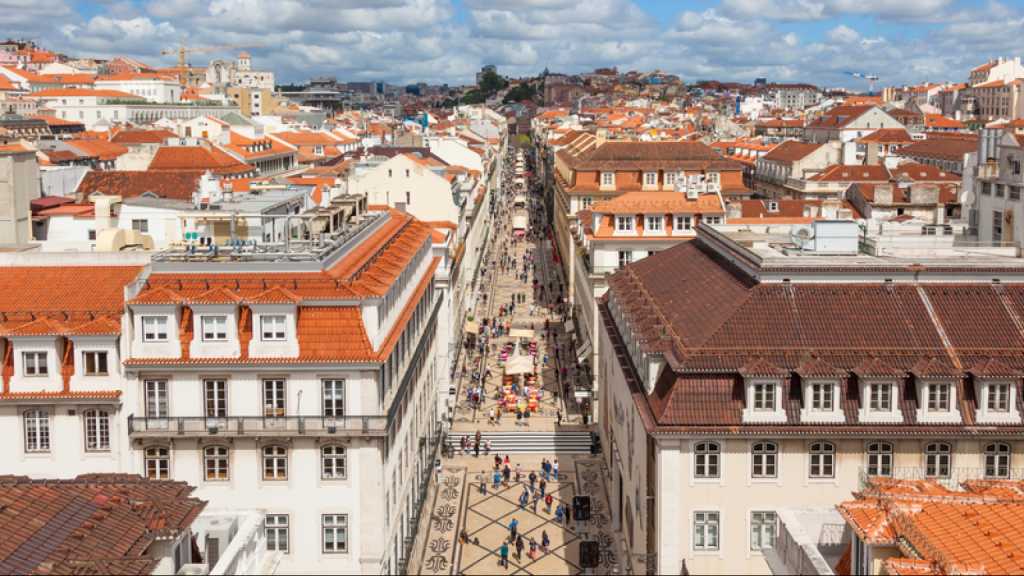
Rua Augusta
Place of InterestWalking down the Rua Augusta, Lisbon´s main pedestrian street, is a delight for the senses. The sun shines and reflects on the colourful mosaic pavements, lively chatter floats up from outdoor cafes and street artists sing and play their…
- Baixa
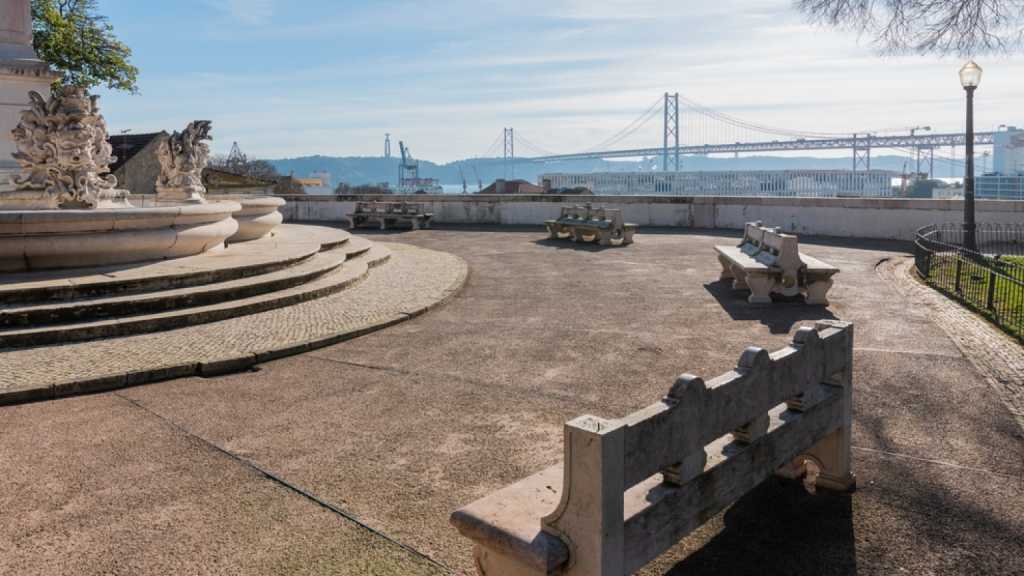
Miradouro do Largo das Necessidades
ViewpointThis leafy and quiet garden is a pleasant place to relax at any time of the day. Urban yet secluded, it faces the Church of the same name. In the past it was known as the Olavo Bilac Garden, in honour of this Brazilian poet. …
- Santos & Alcântara
- Green Space
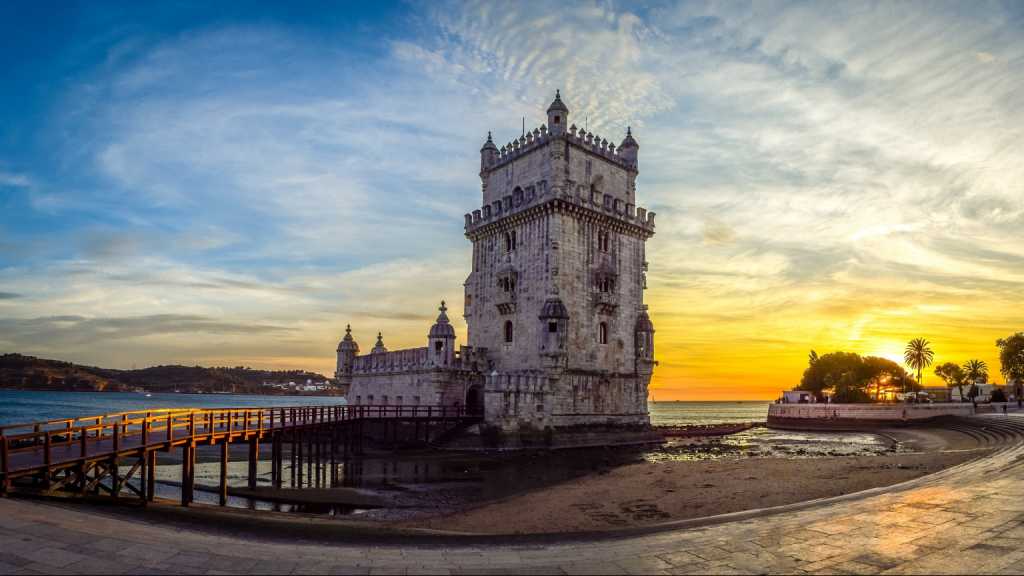
Torre de Belém
Monument & HeritageLocated in the parish of Belém and on the right bank of the Tagus River, the Torre de Belém was built between 1514 and 1519 with the initial military defense function of Barra do Tejo.…
- Belém
- Museum
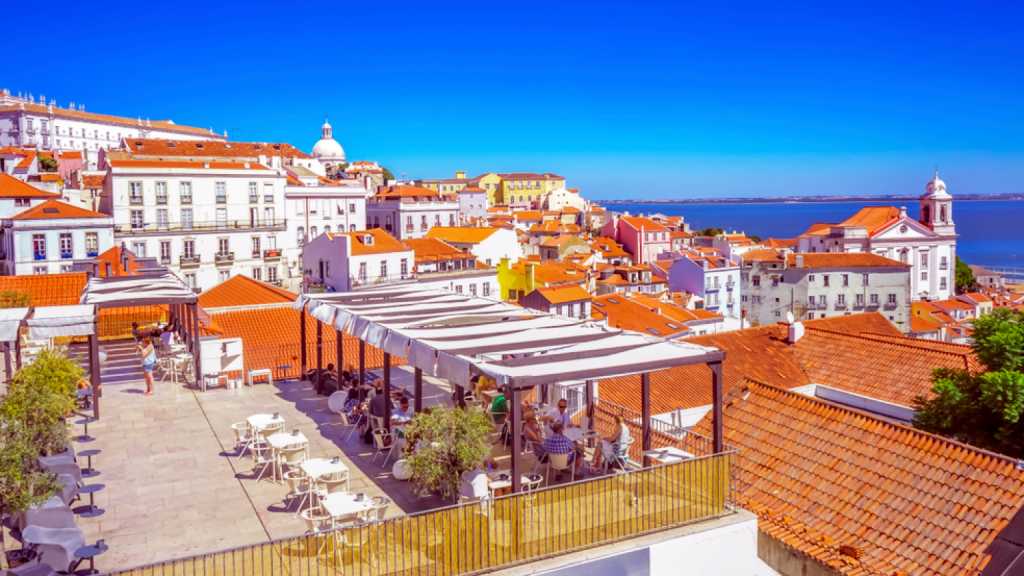
Miradouro Portas do Sol
ViewpointPerched high on a steep and windy climb, this lookout point offers a spectacular view of all of Lisbon. Its name means “Gateway of the Sun” and it is located on the site of an ancient Sun Gate constructed in Moorish Lisbon and destroyed by the…
- Alfama & Castelo
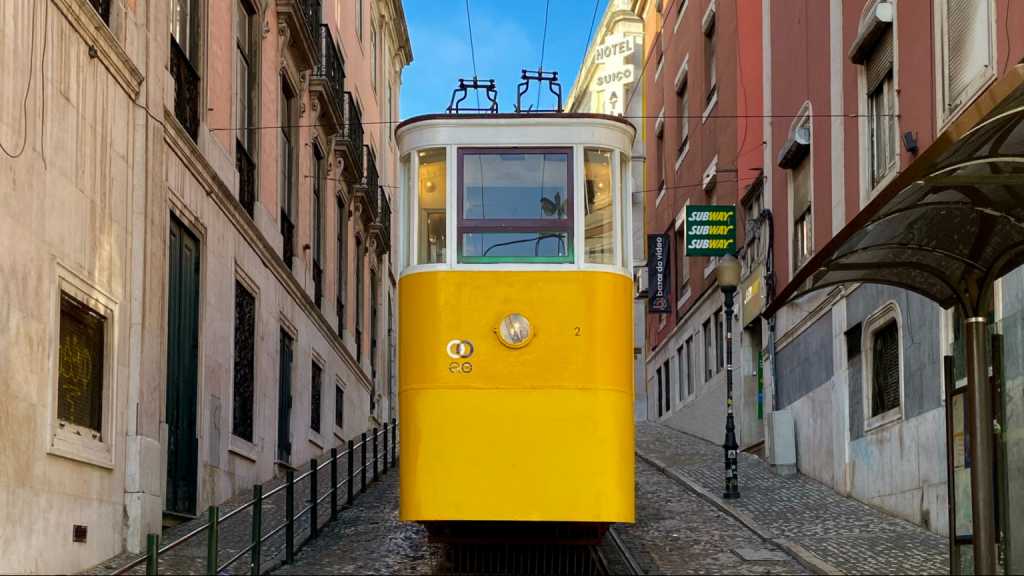
Elevador da Glória
TransportsThe Elevador da Gloria is part of the public transportation system in Lisbon, a practical way to get up and down the steep hills of the city. However, it is more than just a mode of transport - it is a historical treasure and a wonderfully scenic…
- Avenida & Marquês
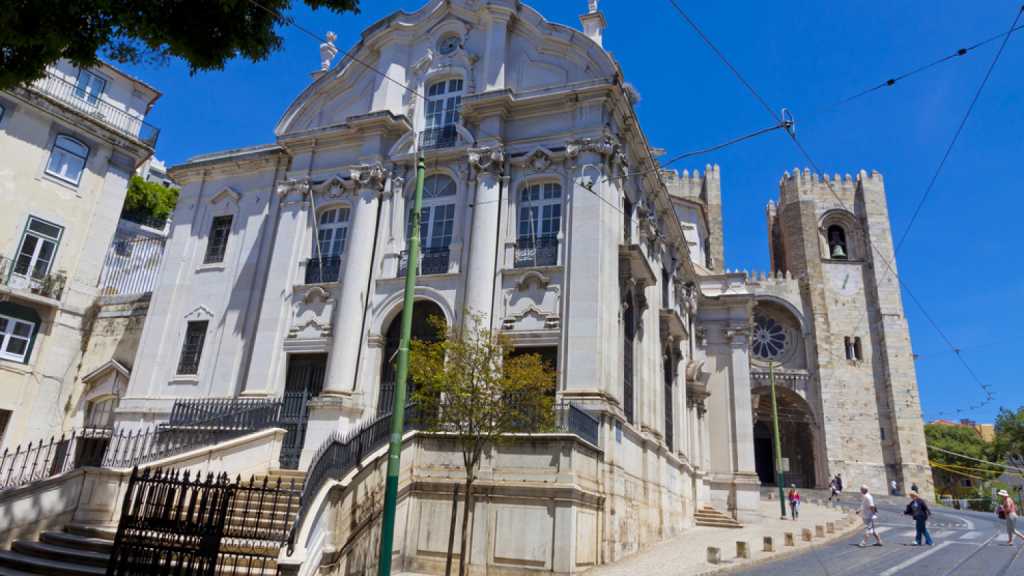
Igreja de Santo António
Monument & HeritageAs you step into this bewilderingly beautiful church, you will feel like you have entered into an enormous pirate’s treasure chest stuffed with golden coins. Almost every surface is covered in glittering gilded woodwork - some of the finest in…
- Alfama & Castelo
- Religious
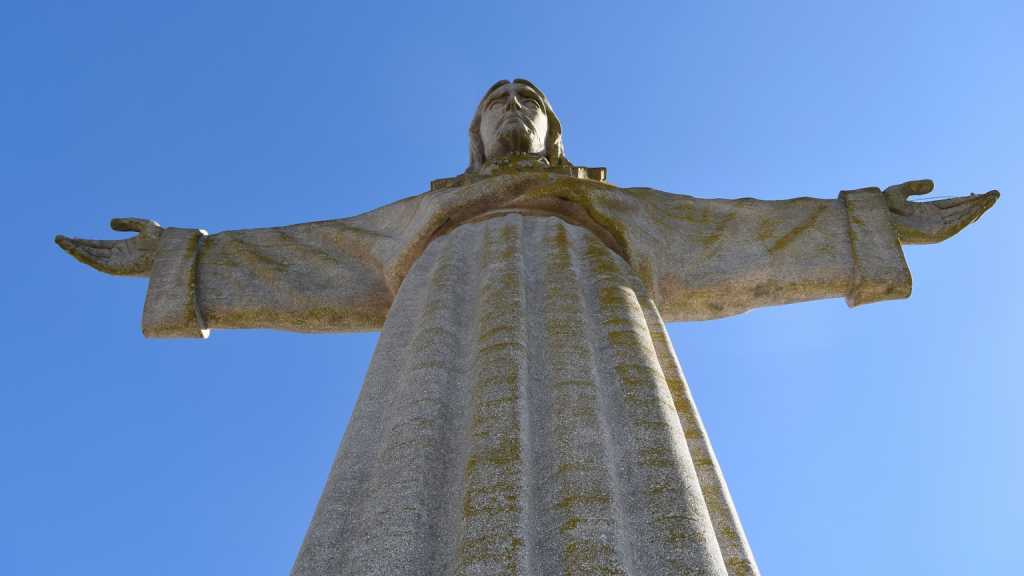
Cristo Rei
ViewpointStanding with outstretched arms over the city of Lisbon, the Christ the King monument was inspired by the iconic Christ the Redeemer sculpture in Rio de Janeiro, Brazil. The enormous cement sculpture was erected in 1959 to express gratitude for the…
- Almada
- Monument & Heritage
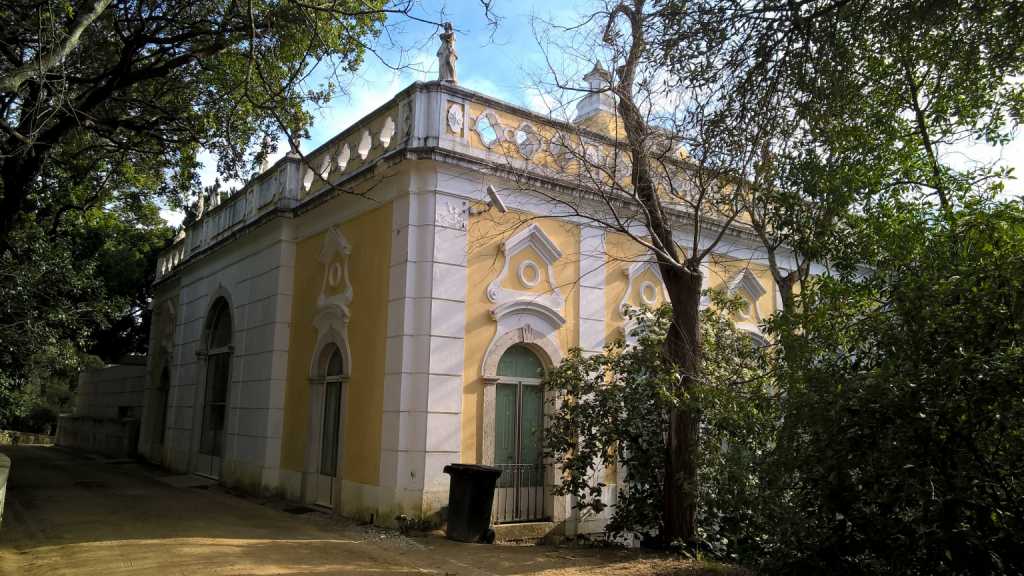
Tapada das Necessidades
Green SpaceThis lush secret garden is a hidden Eden that even most Lisbon people aren’t aware of. …
- Santos & Alcântara
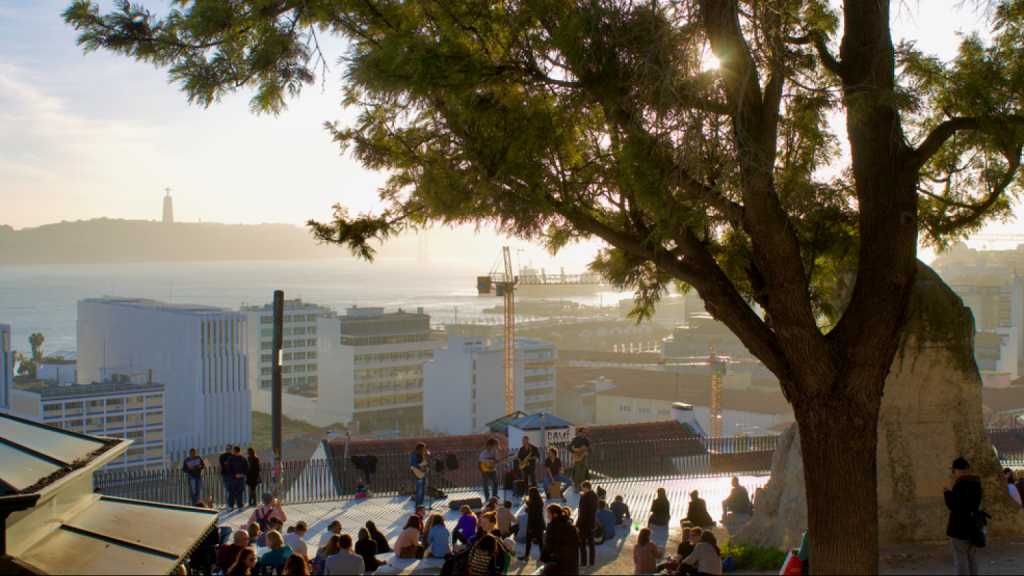
Miradouro de Santa Catarina
ViewpointBack in the 16th-18th century, this viewpoint (also known as the Adamastor Viewpoint) was the perfect place to watch the ships on the water. There is even a popular proverb about “seeing ships from the top of Santa Catarina.” …
- Bairro Alto & Chiado
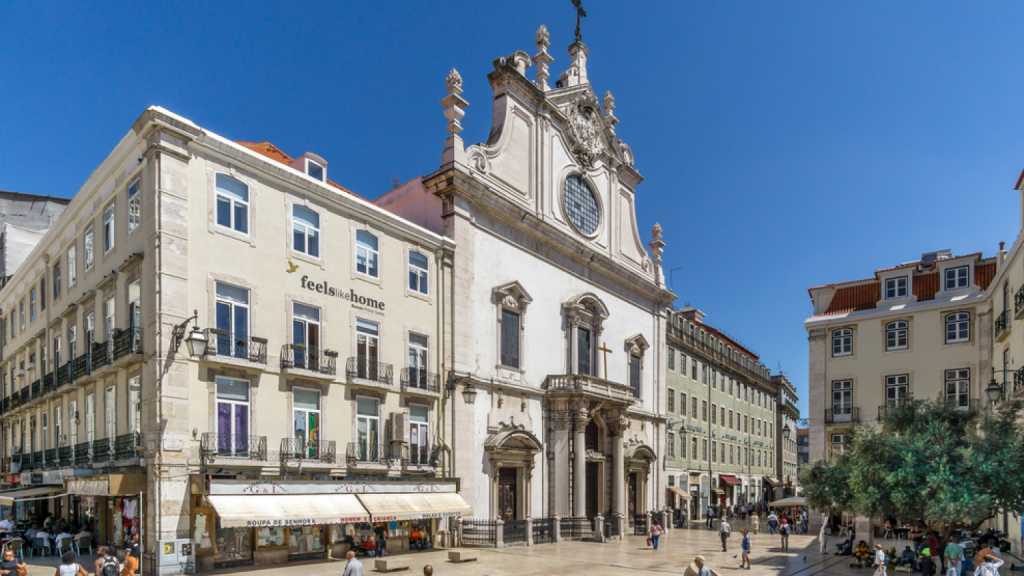
Igreja de São Domingos
Monument & HeritageWhen this grand church was dedicated in 1241, it was the largest church in Lisbon. Throughout the centuries, this National Monument was often used for Portuguese Royal Weddings - creating an impressive setting for the pomp and pageantry of such a…
- Baixa
- Religious
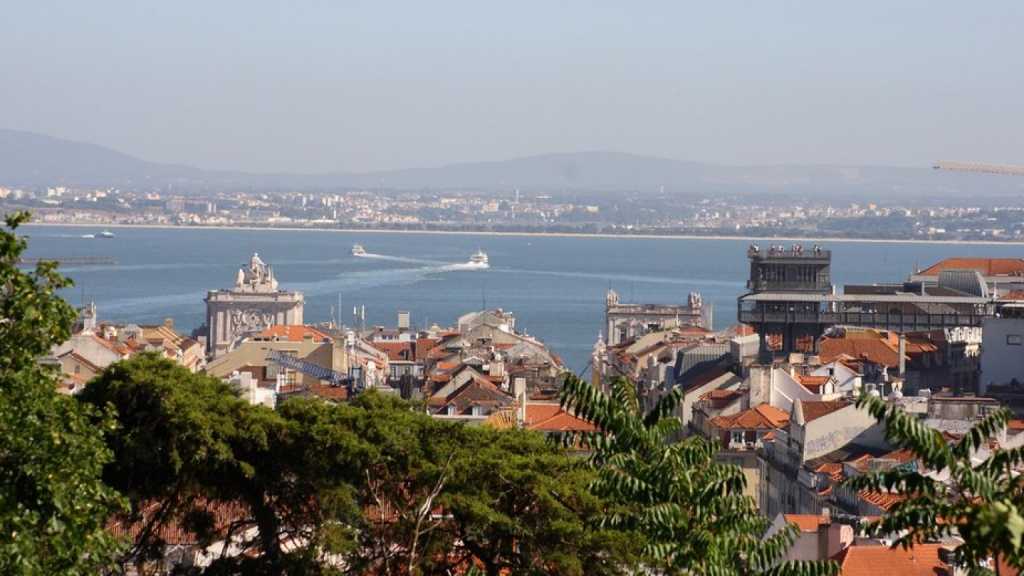
Jardim do Torel
ViewpointPerched upon one of the seven hills of Lisbon, this lovely garden provides visitors with a breathtaking panorama of the city of Lisbon. …
- Avenida & Marquês
- Green Space

Jardim Zoológico
Zoo ParkDr. Pedro Van Der Laan, together with José Thomaz Sousa Martins and Barão Kessler, created this fascinating zoo in Lisbon in 1884. It was the first park with fauna and flora of the Iberian Peninsula. An incredible variety of animal species can be…
- Benfica
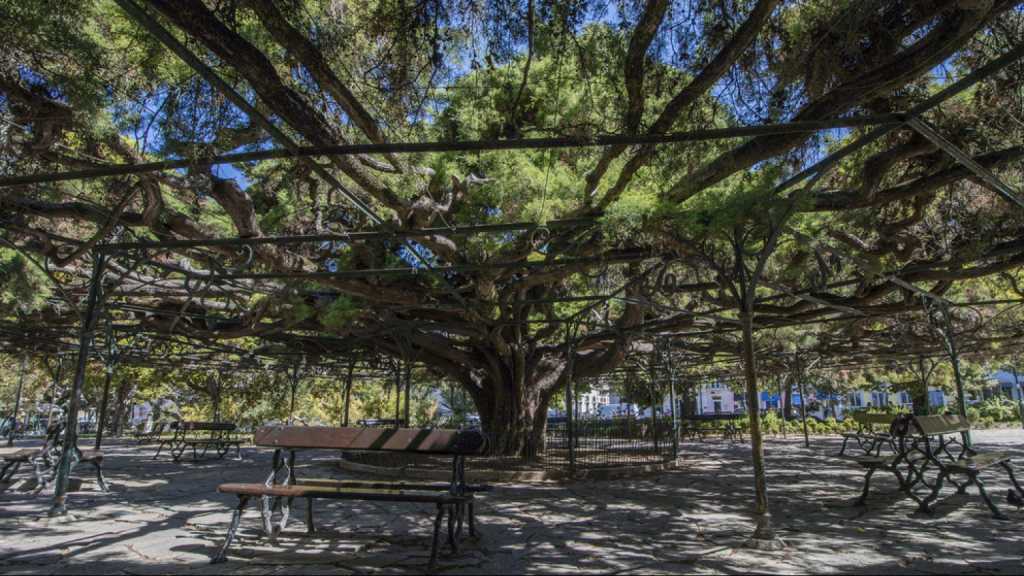
Praça do Príncipe Real
Place of InterestThe tranquil gardens of Praça do Príncipe Real are a beautiful place to take a break on a sunny afternoon. This romantic square, built in the mid-19th century, is shaded by some exotic trees, especially an enormous cedar over 20 meters in diameter,…
- Príncipe Real
- Green Space
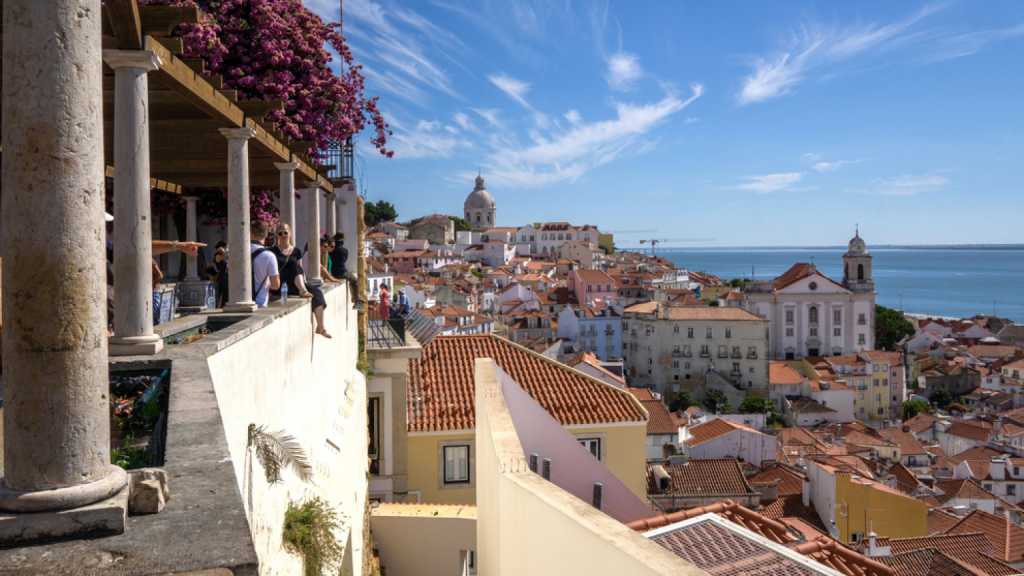
Miradouro de Santa Luzia
ViewpointIf you are looking for a romantic spot to take your sweetheart that will make their eyes sparkle with wonder - this scenic terrace is it. Lisbon is known for these miradouros or lookout points, which offer a pleasant place to rest your feet and gaze…
- Alfama & Castelo
- Green Space
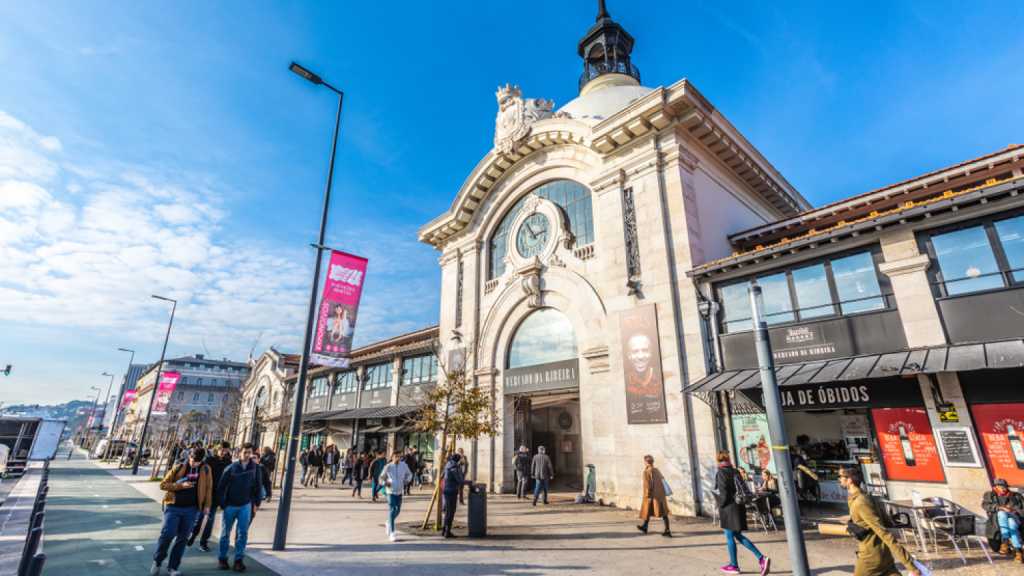
Mercado da Ribeira - Time Out Market
Place of InterestAlso known as the Mercado 24 de Julho, this vibrant spot has been the main market in Lisbon since 1892. It was closed down for a while but in 2014 it was taken over by Time Out magazine and several more stalls offering traditional local products and…
- Cais do Sodré
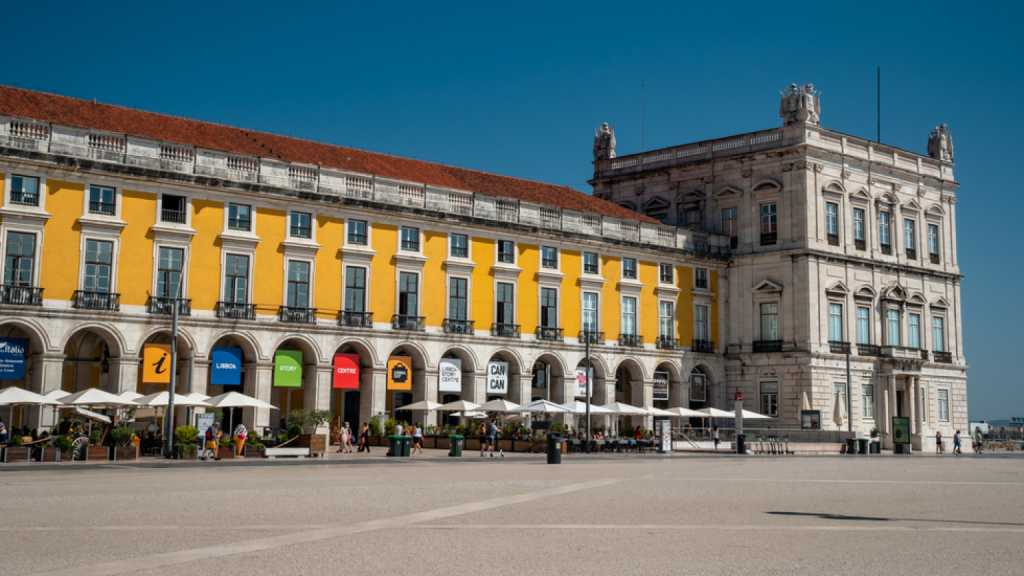
Lisbon Story Centre
MuseumThis intriguing and interactive museum will take visitors on a 60 minute journey, revealing the history of Lisbon from its original founding in ancient Roman day to the modern era. The well-made multimedia exhibits and audio guide will teach you all…
- Baixa
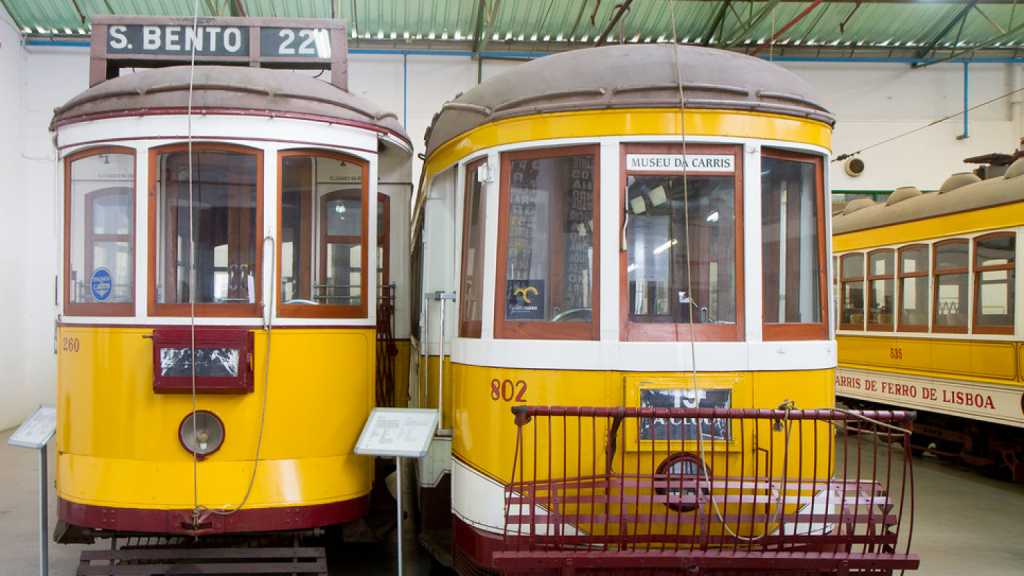
Museu da Carris
MuseumLisbon’s public transport system is a big part of the city’s character and it has gone through many reinventions over the years. …
- Santos & Alcântara
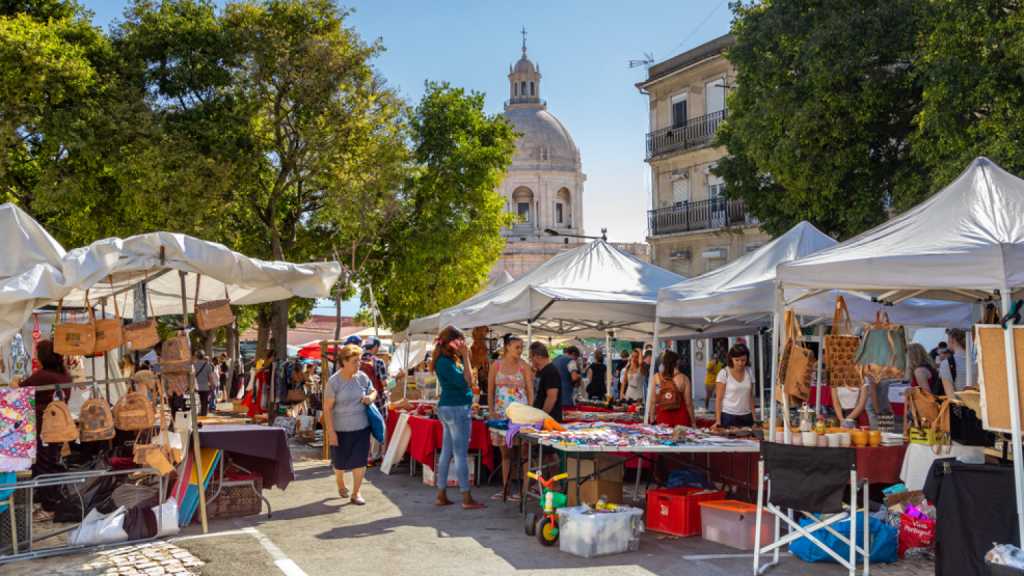
Feira da Ladra
Place of InterestLisbon’s famous flea market has been in the same location since the 12th Century - a long history of trading goods in a compact network of little stalls that has now overflowed into the surrounding streets and squares. …
- Alfama & Castelo
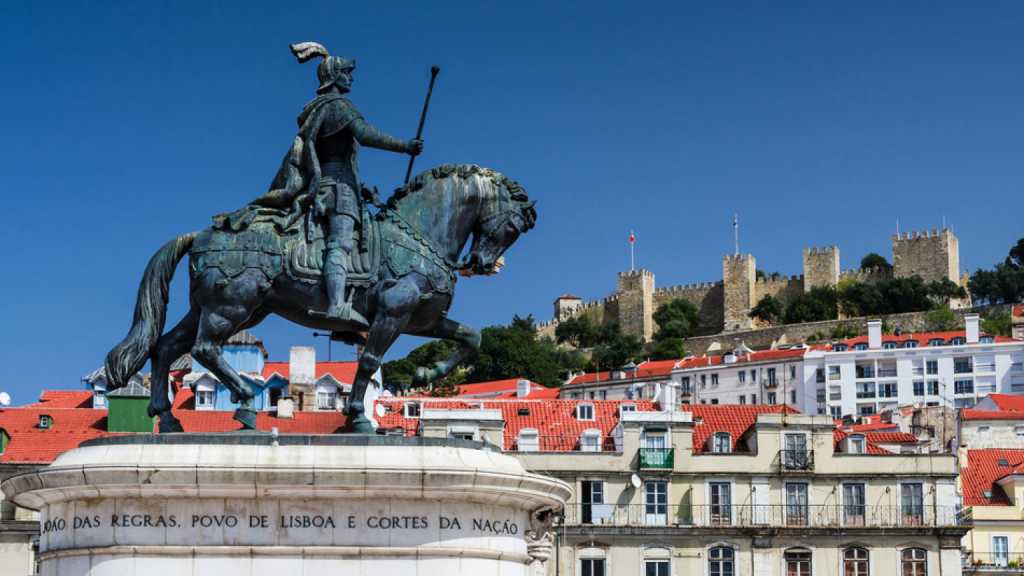
Praça da Figueira
Place of InterestPraça da Figueira is located in Lisbon downtown, near the Rossio and underwent a change in 1755. Before the 1755 earthquake was the site of the All Saints Royal Hospital, which did not withstand the catastrophe. In 1885, with the new planning plan…
- Baixa
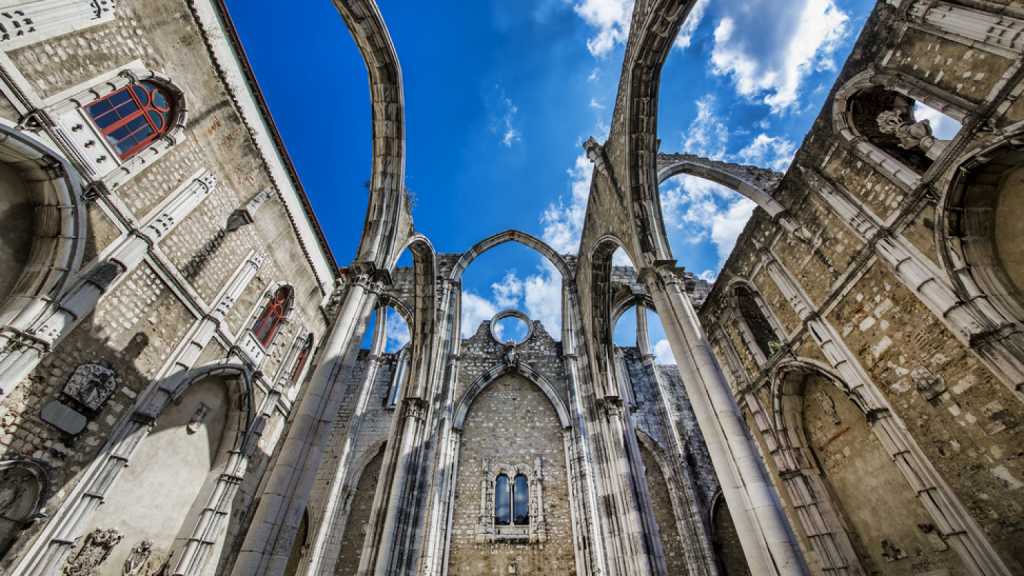
Igreja do Carmo
Monument & HeritageOne of the main tourist attractions of Lisbon, the Convent and Carmo Church was once the main Gothic church in the city. Built between 1389 and 1423, it was ruined by the earthquake of 1755. Having not been rebuilt, it is currently one of the main…
- Bairro Alto & Chiado
- Religious
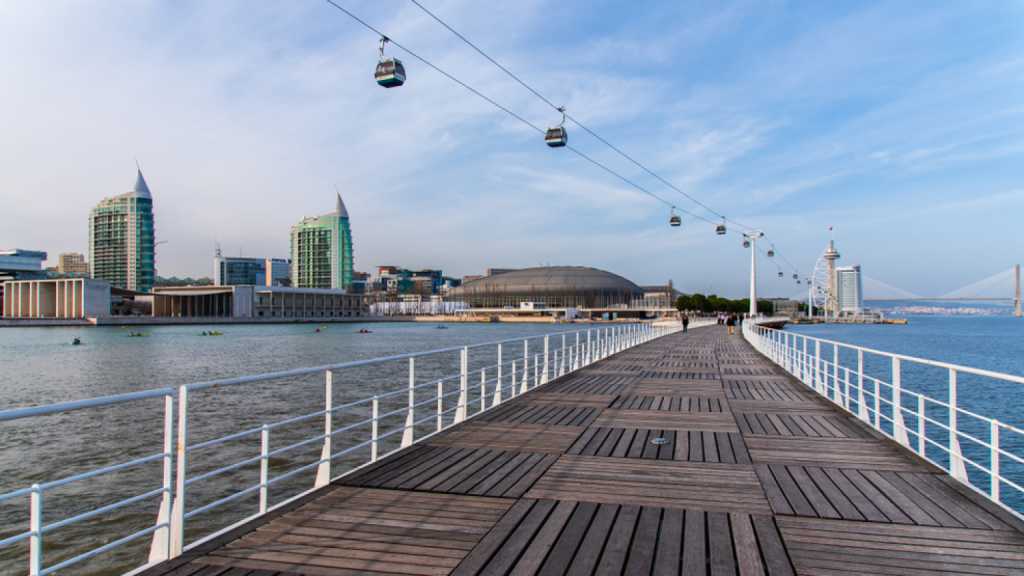
Parque das Nações
Place of InterestThe striking contemporary architecture of this riverside park is a stark contrast to the historic buildings of the older areas of Lisbon. Many of the structures of the Parque das Nações were built by innovative architects for Expo 98, the World…
- Parque das Nações
- Green Space
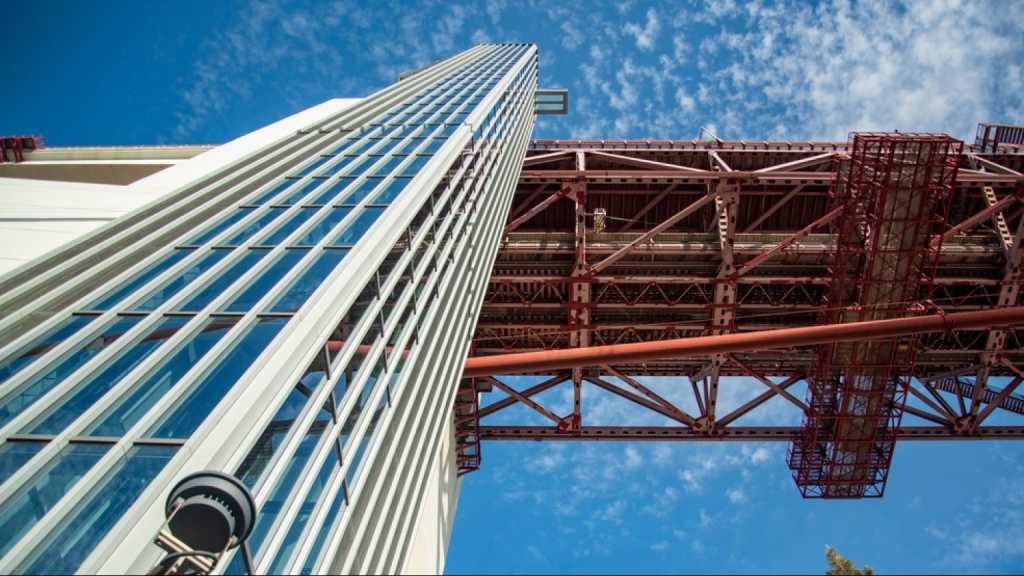
Experiência Pilar 7 - Ponte 25 de Abril
ViewpointIn commemoration of World Tourism Day, a new lookout point was opened on 27 September 2017 in Lisbon, located at 25 de Abril Bridge, in Alcântara. With access through the Avenida da Índia, this belvedere allows a privileged view of Lisbon to the…
- Santos & Alcântara
- Museum
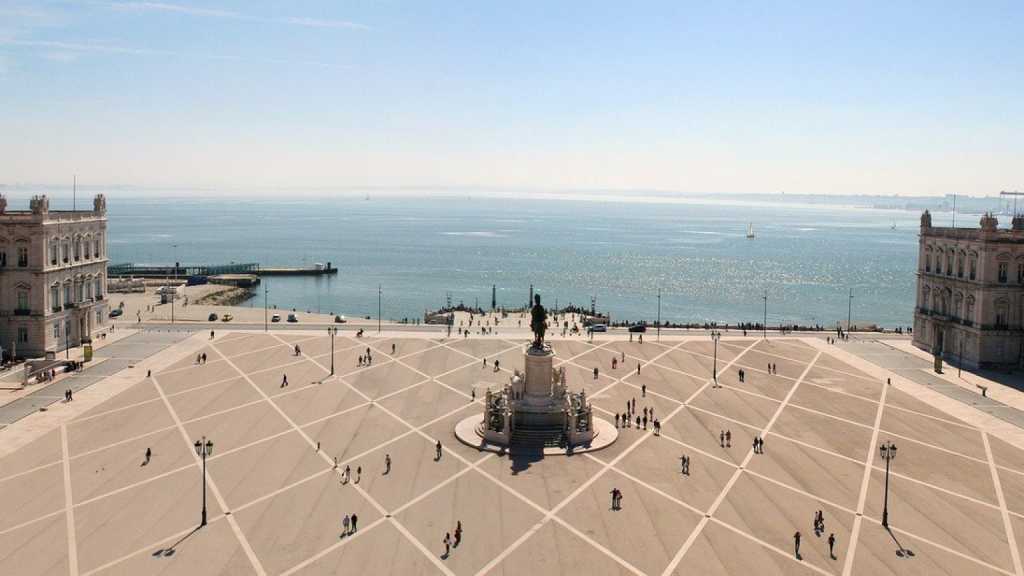
Praça do Comércio
Place of InterestAlso known as Terreiro do Paço, Praça do Comércio is one of the most majestic squares in Lisbon, and one of the largest in Europe.…
- Baixa
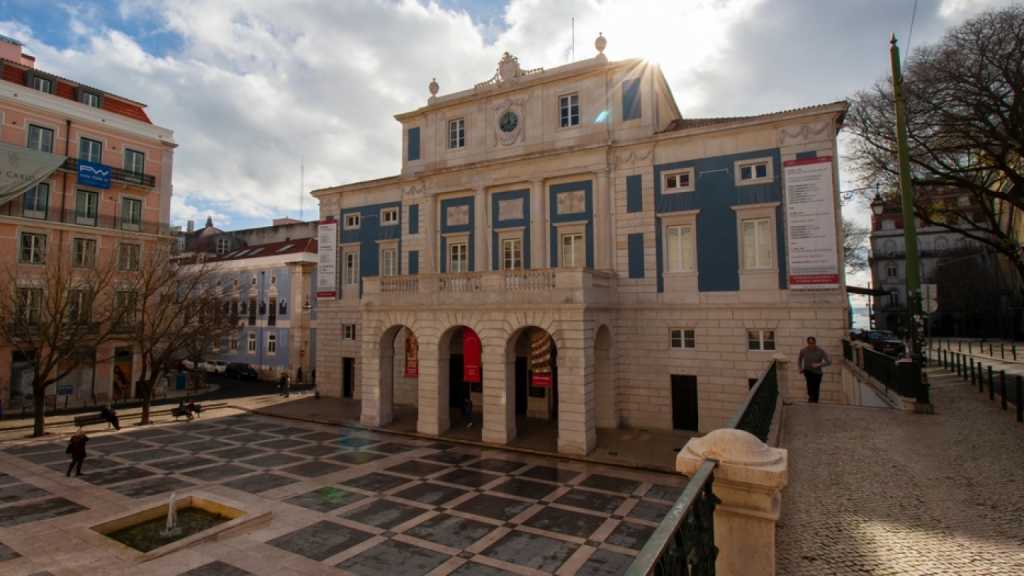
Teatro Nacional de São Carlos
Spectacle RoomThe National Theatre of Saint Charles is a gorgeous opera house in Lisbon, a must-see for any culture lover who visits this Portuguese city. The elegant building was opened in 1793 by Queen Maria I and it is located in the historic Chiado district in…
- Bairro Alto & Chiado
- Monument & Heritage
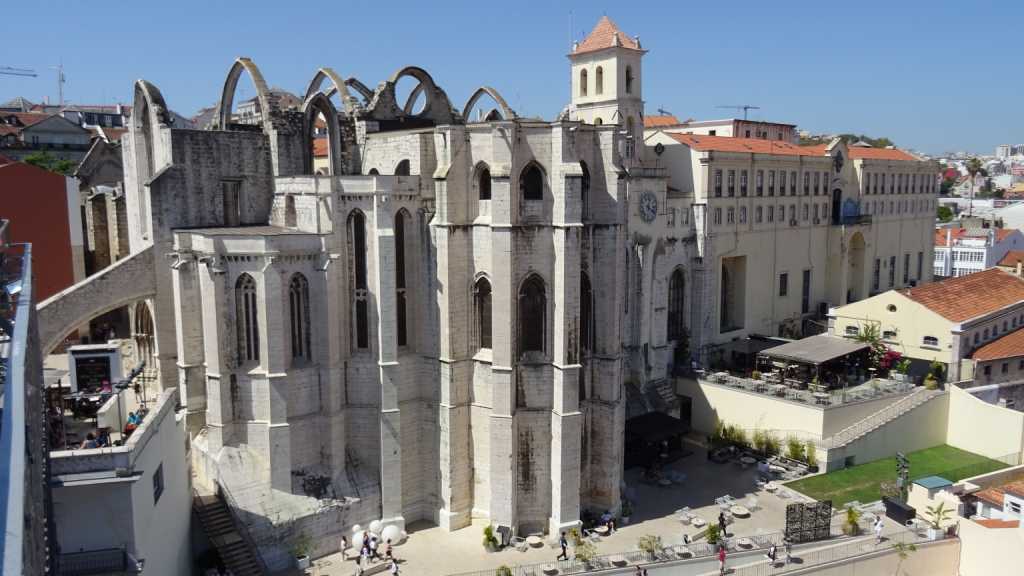
Museu Arqueológico do Carmo
MuseumWithin the skeletal ruins and exposed pillars and arches of the Convento do Carmo there is a fascinating archaeological museum that holds many treasures from years gone by. This museum was constructed in order to preserve and protect the…
- Bairro Alto & Chiado
- Archaeological
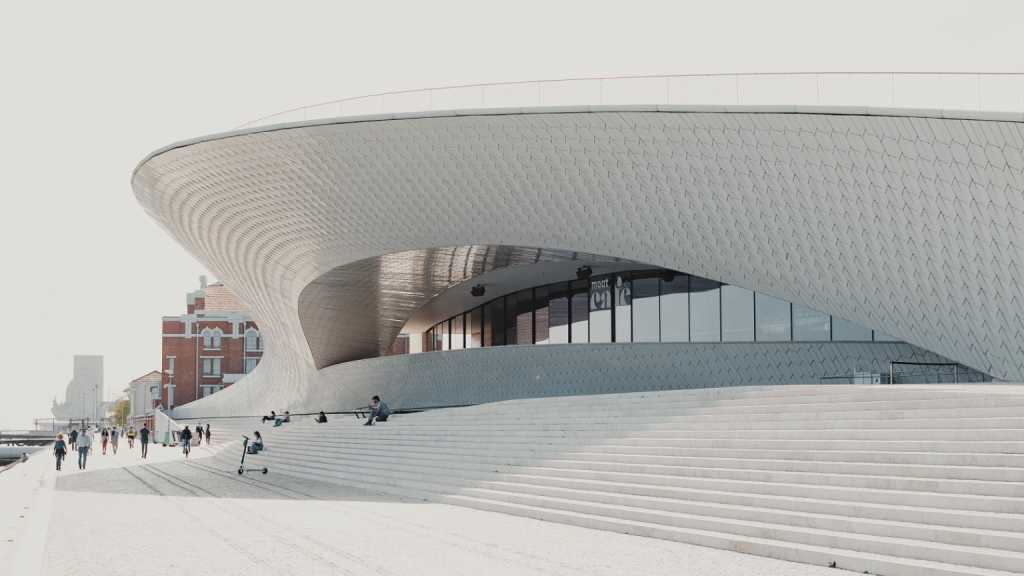
Museu de Arte, Arquitectura e Tecnologia
MuseumThe MAAT is the Museum of Art, Architecture and Technology and it is one of the most intriguing and exciting cultural institutions in Lisbon. …
- Belém
- Viewpoint
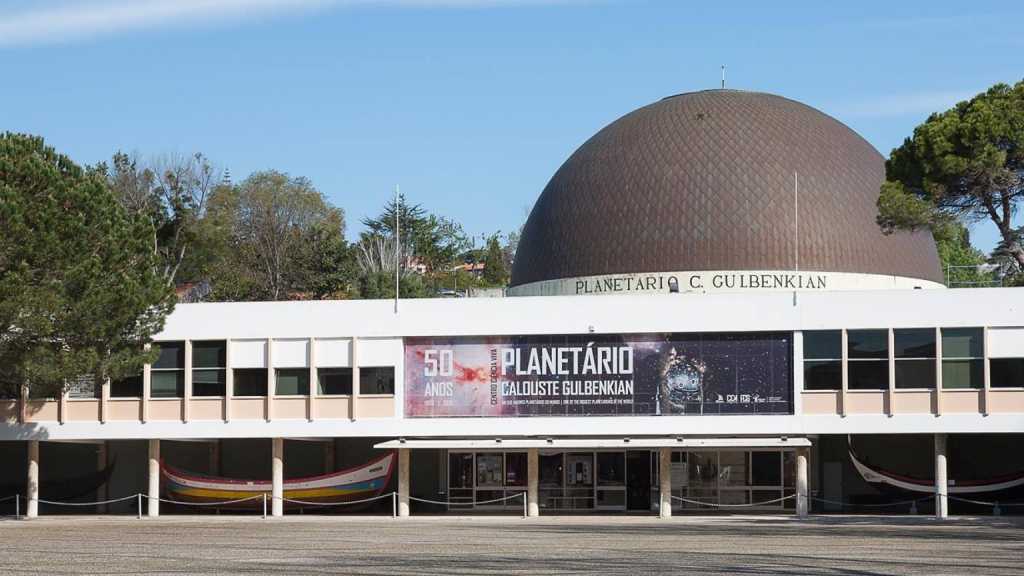
Planetário Calouste Gulbenkian
MuseumLocated next to the Mosteiro dos Jerónimos and the Museu da Marinha, the Calouste Gulbenkian Planetarium began operating in 1965, in the building that was designed by the architect Frederico George.…
- Belém
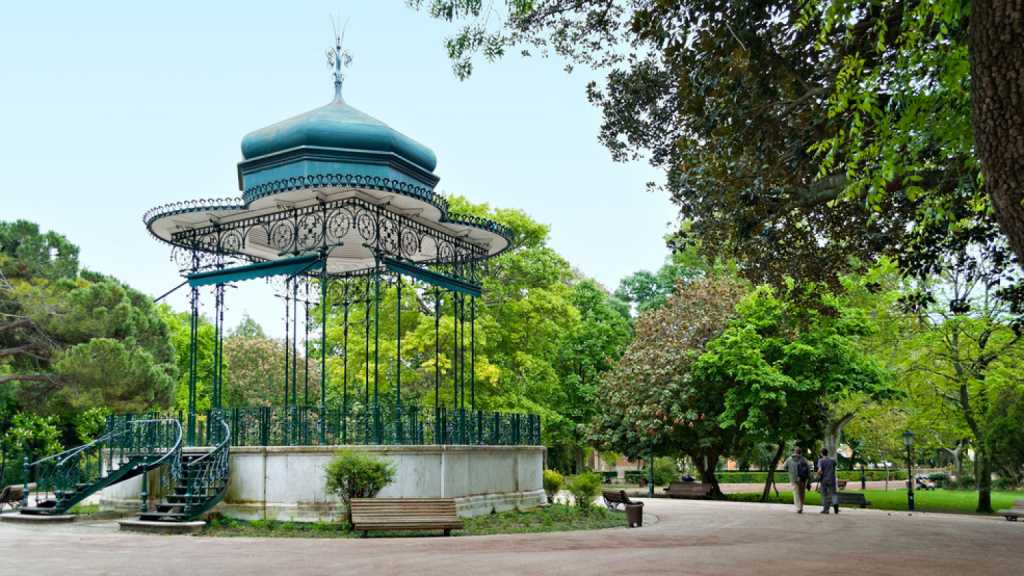
Jardim da Estrela
Green SpaceAlso known as Jardim Guerra Junqueiro, this charming green space built in the 19th century, is the perfect place for a ride.…
- Estrela
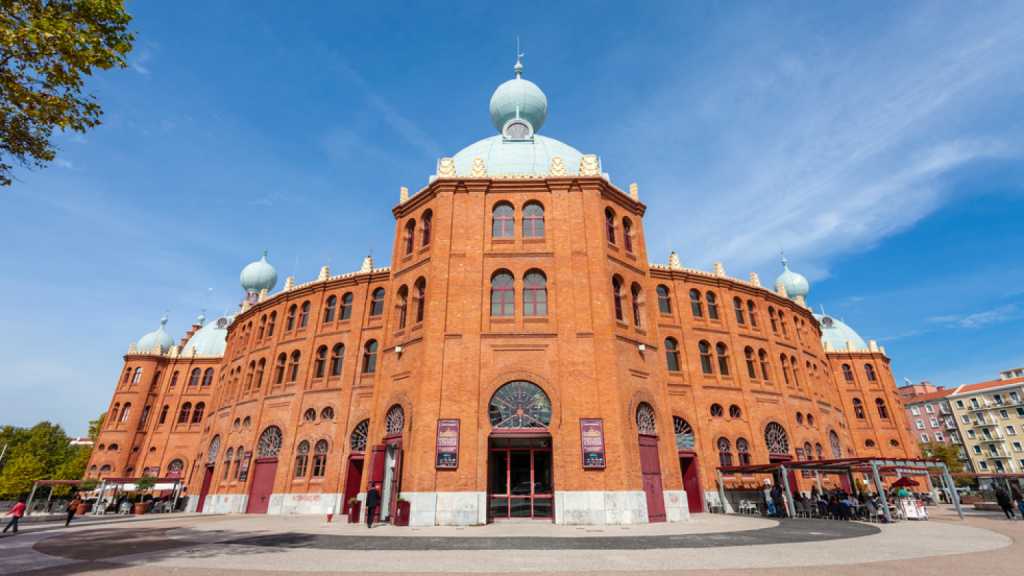
Campo Pequeno
Place of InterestThe Campo Pequeno Building is a superb example of innovative architecture in Lisbon. It brings together heritage and old fashioned style with a high level of luxury, elegance and modern technology. …
- Campo Pequeno
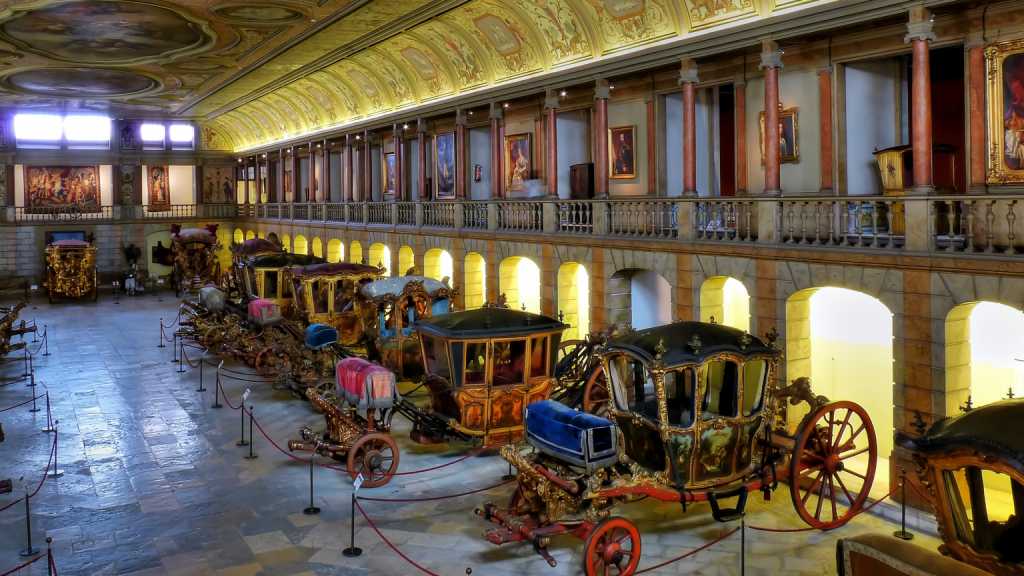
Museu Nacional dos Coches
MuseumImagine how pompous it would have been to travel in a luxurious carriage, with its cushioned benches and surrounded by a gilded frame. The National Coach Museum of Lisbon is a fascinating exhibition of richly decorated vehicles designed to transport…
- Belém
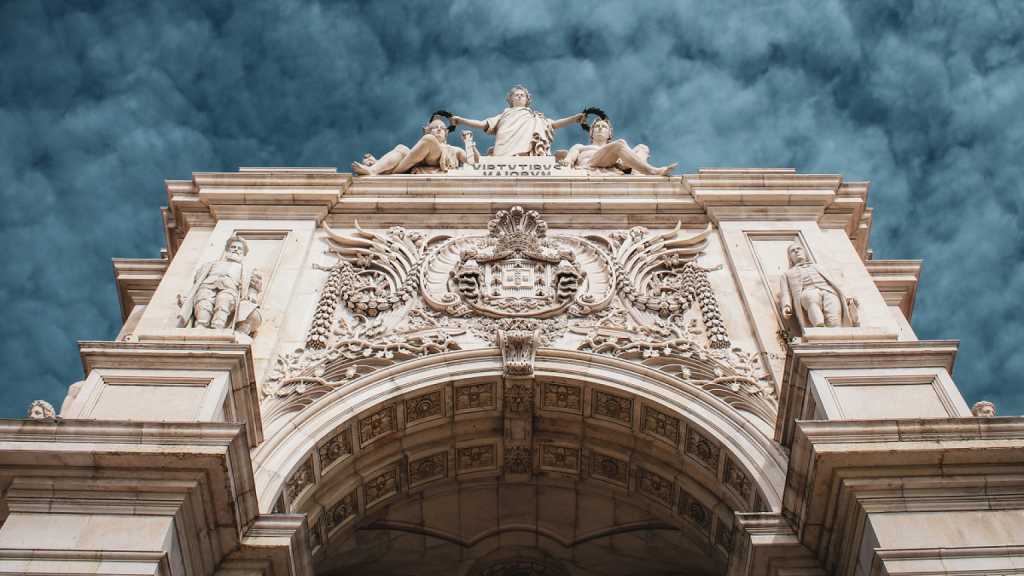
Arco da Rua Augusta
Monument & HeritageThe triumphal arch, towering over the Praca do Comercio, is one of the most recognised historic monuments in the city. Designed by the architect Santos de Carvalho, it celebrates the rebirth of the city after it was almost completely destroyed by the…
- Baixa
- Viewpoint
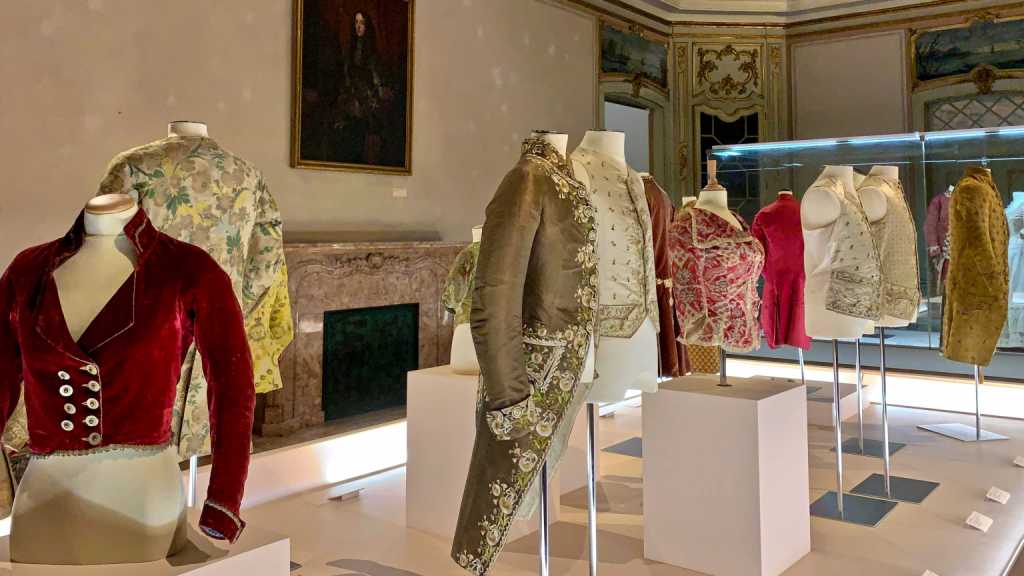
Museu Nacional do Traje
MuseumLocated in the Angeja-Palmela Palace, annexed to Monteiro-Mor Botanical Park, the Museu Nacional do Traje was created in 1976 and gathers collections of civil, national and international costume and accessories from the 18th century to the present…
- Campo Grande & Alvalade
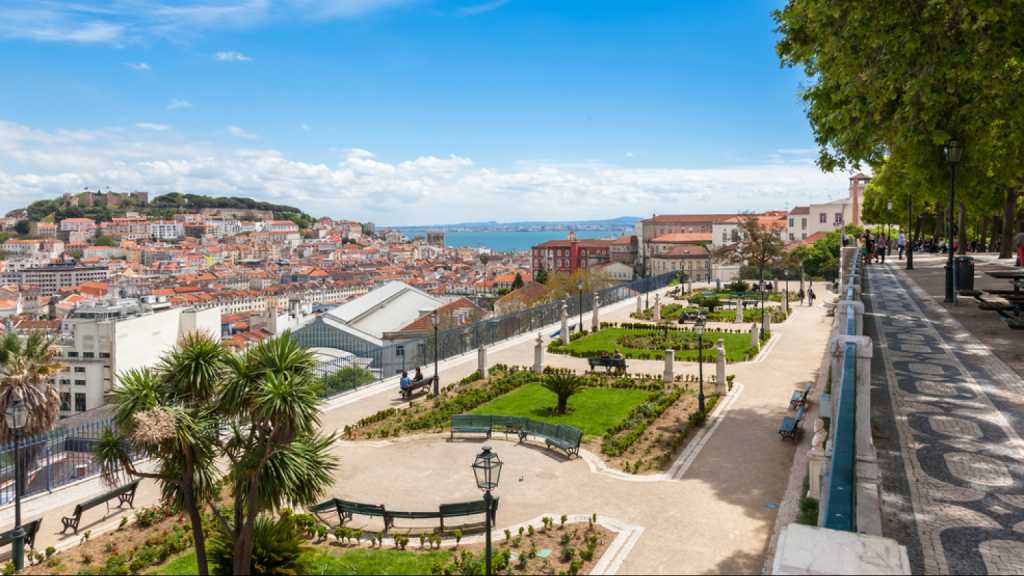
Miradouro de São Pedro de Alcântara
ViewpointOf all the scenic lookout points of Lisbon, this is the most romantic of all. In the middle of the busy and noisy streets of the city streets, it is a beautiful and serene oasis. It offers a breath-taking view of downtown, the castle and the river.…
- Bairro Alto & Chiado
- Green Space
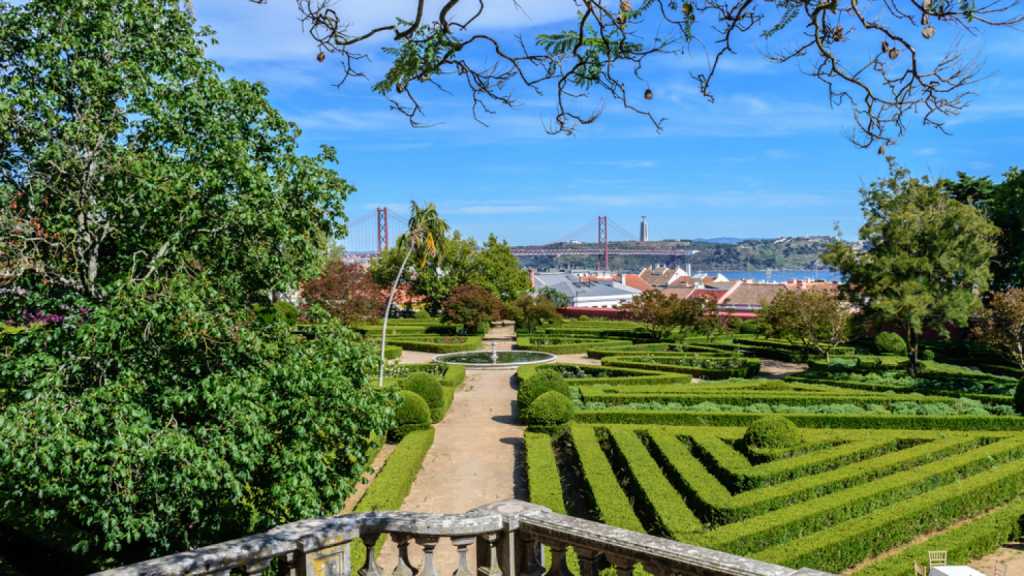
Jardim Botânico da Ajuda
Green SpaceA sprawling green space surrounding Ajuda Palace, this peaceful retreat is the oldest botanical garden in Portugal. …
- Ajuda
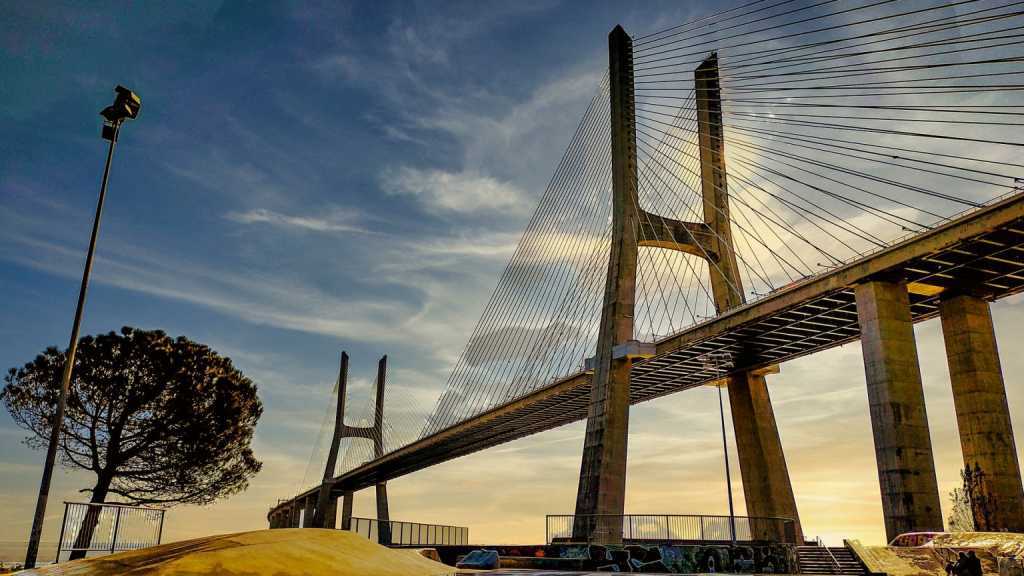
Ponte Vasco da Gama
BridgeThe Vasco da Gama Bridge is one of the bridges over the Tagus River, which connects Lisbon and Montijo in the South Bank. Inaugurated in March 1998, it is the largest bridge in Europe, with 17.3 km long (over 10.5 miles), and one of the highest…
- Parque das Nações
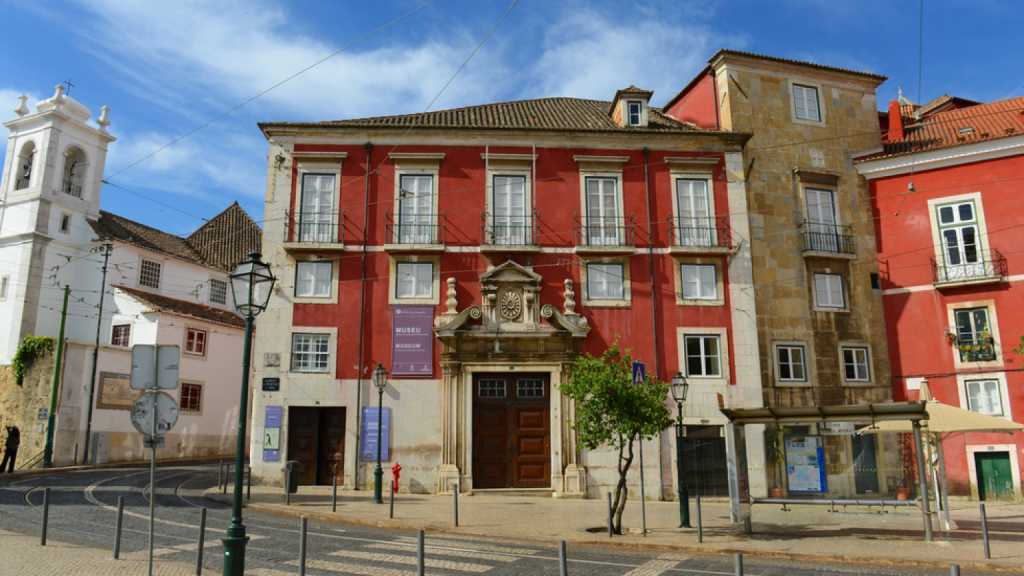
Museu das Artes Decorativas
MuseumAn absolute feast for the eyes, this Lisbon museum offers a stunning collection of decorative arts from throughout the ages. It is owed by the Ricardo Espirito Santo Silva Foundation, which is dedicated to preserving the rich cultural heritage that…
- Alfama & Castelo
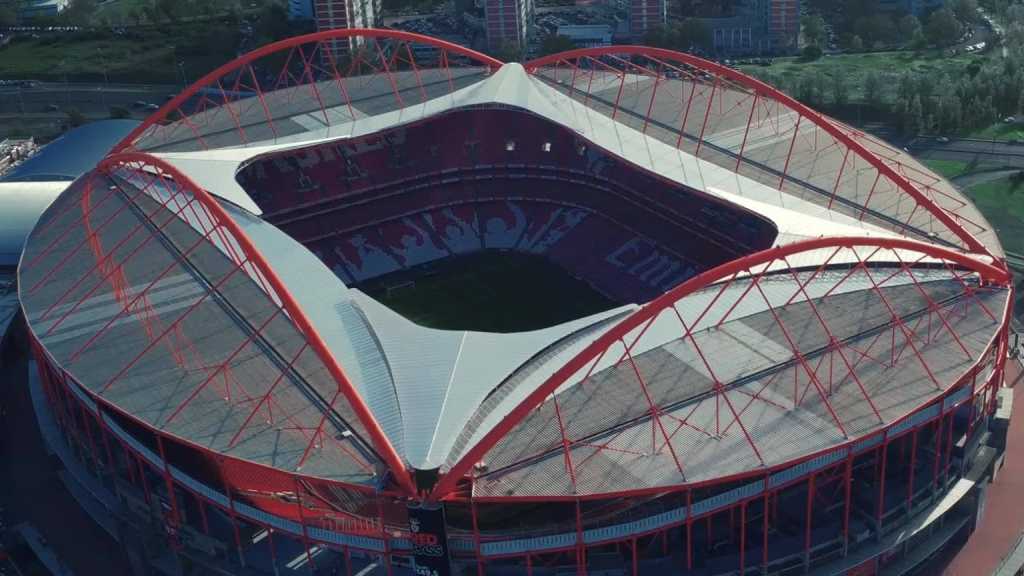
Sport Lisboa e Benfica
MuseumEmblematic since 1904, Sport Lisboa e Benfica is a Portuguese multi-sport club known mainly for football. We invite you to visit its stadium, a monument representing the past and present of the most titled team represented by an eagle at the national…
- Benfica
- Football Stadium
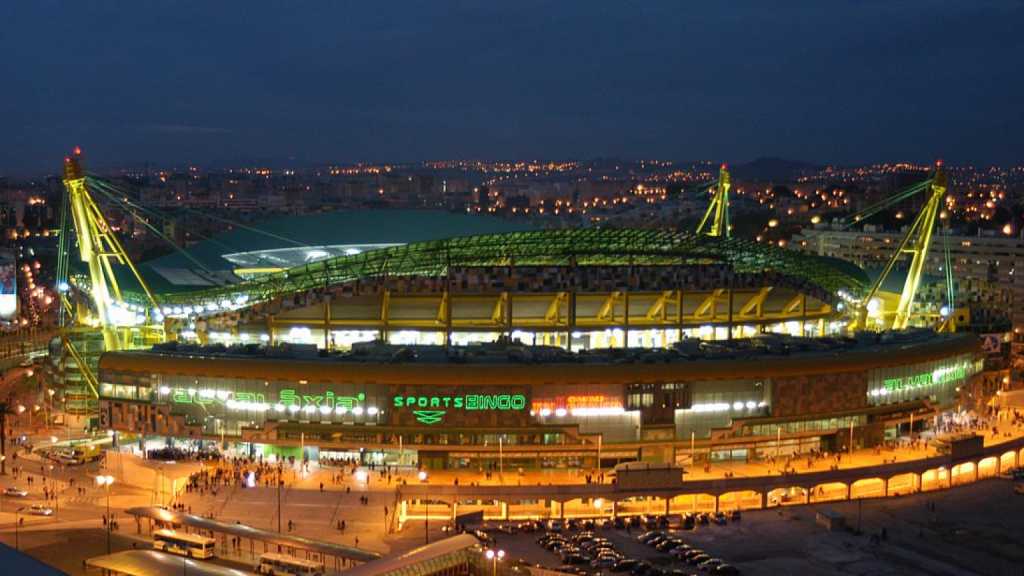
Sporting Clube de Portugal
MuseumOfficially recognized in 1906, José Alvalade created Sporting at a developing period of sports culture and is currently a Portuguese multi-sport club, better known for Football. We invite you to visit the José Alvalade Stadium, representative of…
- Campo Grande & Alvalade
- Football Stadium
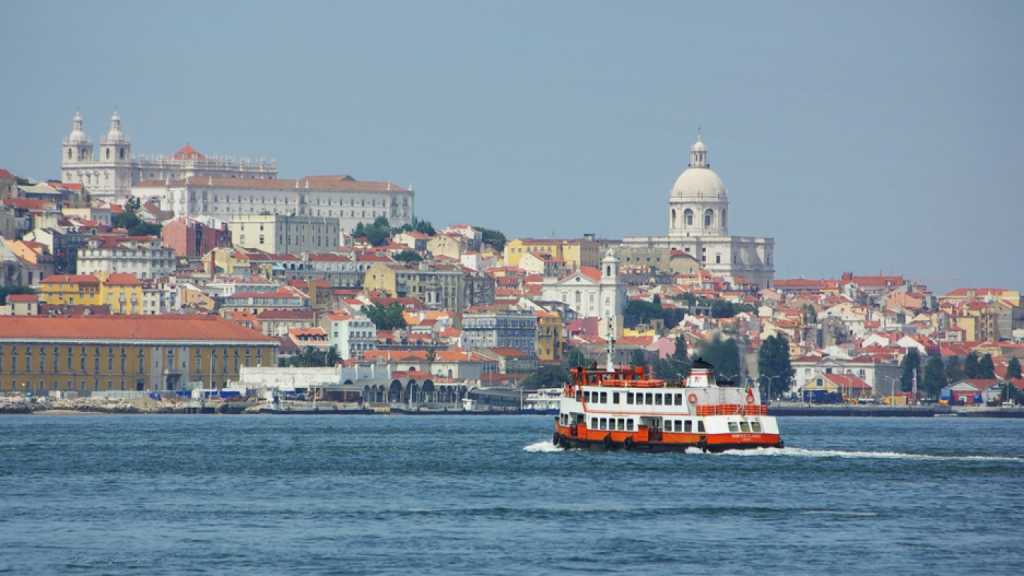
Boat / Ferry
Transports | €-€€The boat/ferry, known as cacilheiro, is more than a means of public transport. Feel like a Portuguese navigator discovering the south bank with your family. Board from Cais do Sodré to Cacilhas, sit near a window and see the river, where dolphins…
- Cais do Sodré
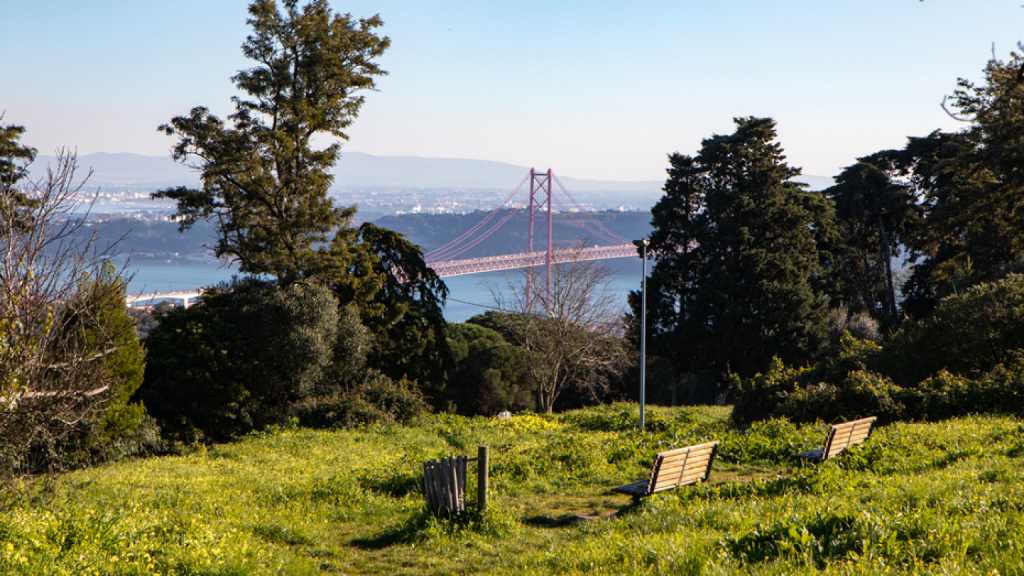
Parque do Monsanto
Green SpaceLocated in Serra de Monsanto, Monsanto Park is around 1000 hectares of forest, comprising seven parishes in Lisbon. Considered "Lisbon Lung", it is the largest Portuguese forest park and one of the largest in Europe. Due to its characteristics, it…
- Santos & Alcântara
- Trails
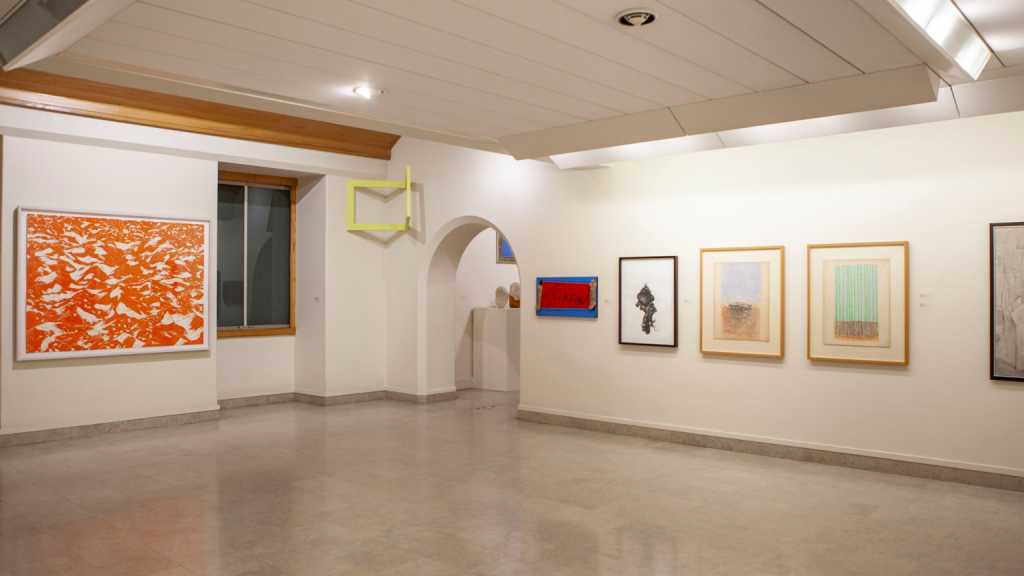
Fundação Vieira da Silva
MuseumLocated in Praça das Amoreiras, in Lisbon, the Arpad Azenes & Vieira da Silva Foundation is a public utility institution and dedicated to the dissemination and studies of these plastic artists, as well as their contemporaries, intellectuals and…
- Campo de Ourique & Campolide
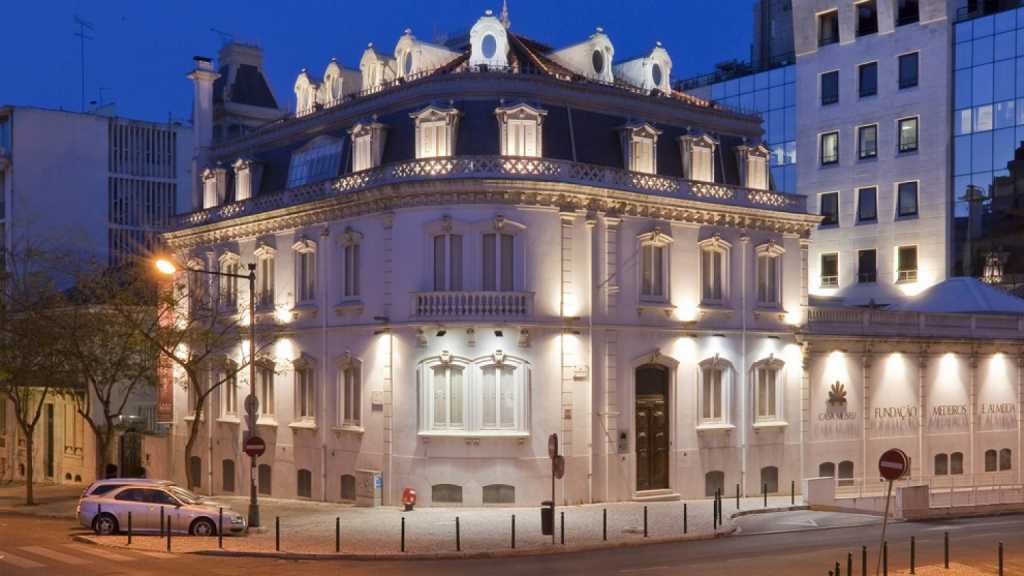
Casa Museu Medeiros & Almeida
MuseumLocated on Rua Rosa Araújo, Casa Museu Medeiros e Almeida is a must-see in Lisbon. This unique house bought by Doctor António de Medeiros e Almeida, who dedicated himself to business and passion for art, became a museum. The collections started as…
- Avenida & Marquês
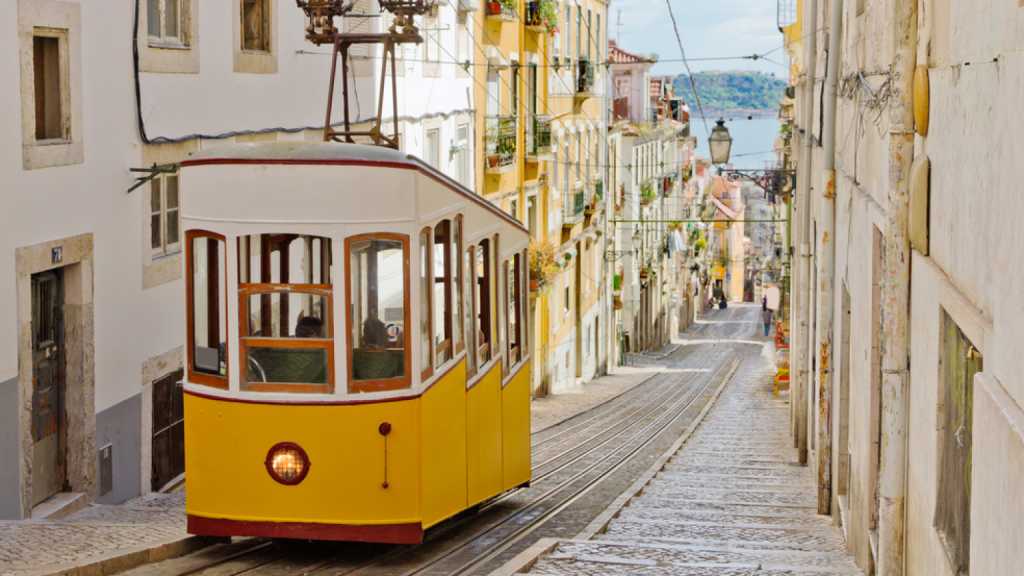
Elevador da Bica
TransportsIf your goal is to enjoy the lifestyle and architecture Lisbon offers, then without a doubt, one of the best ways to do it is to travel in the various funicular cars spread throughout the city of Lisbon. …
- Cais do Sodré
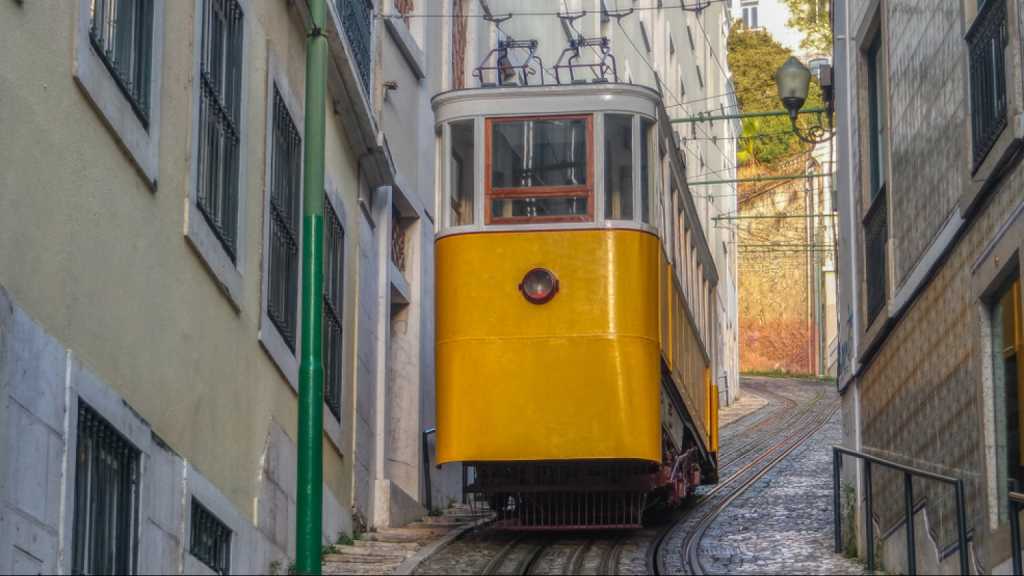
Elevador do Lavra
TransportsThe Elevador da Lavra, also known as Ascensor do Lavra, is a funicular that connects Rua Câmara Pestana with Largo da Anunciada. Inaugurated in 1884 and located at Calçada do Lavra, it is considered the oldest elevator in the city of Lisbon. The…
- Avenida & Marquês
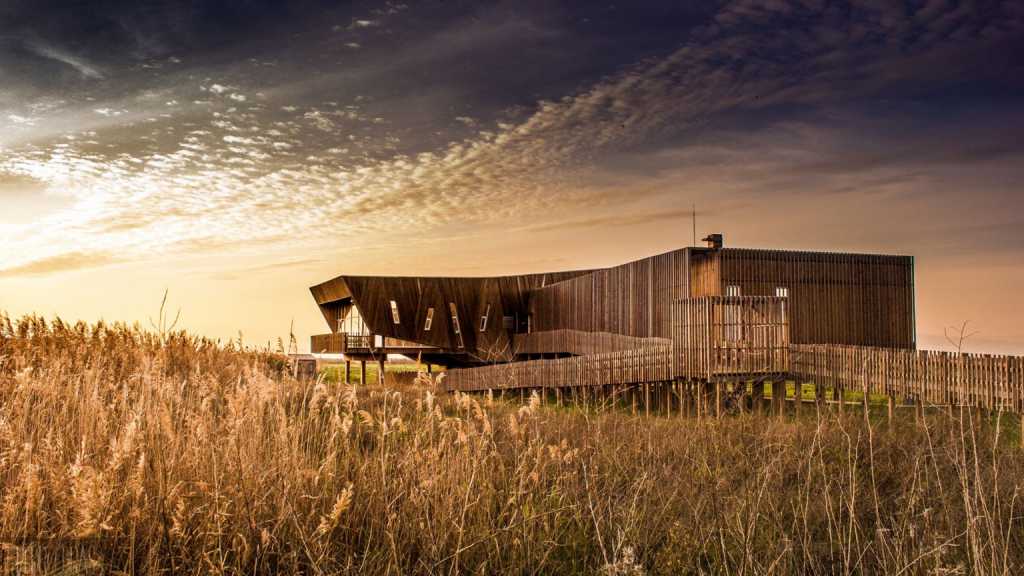
EVOA - Espaço de Visitação e Observação de Aves
Green SpaceLocated in the heart the most important wetland of Portugal, the Tagus Estuary Natural Reserve, EVOA – Tagus Estuary Birdwatching and Conservation Area, allows the visitors to know and enjoy the unique heritage that we have between the Lezíra and…
- Lagoon
- Green Space
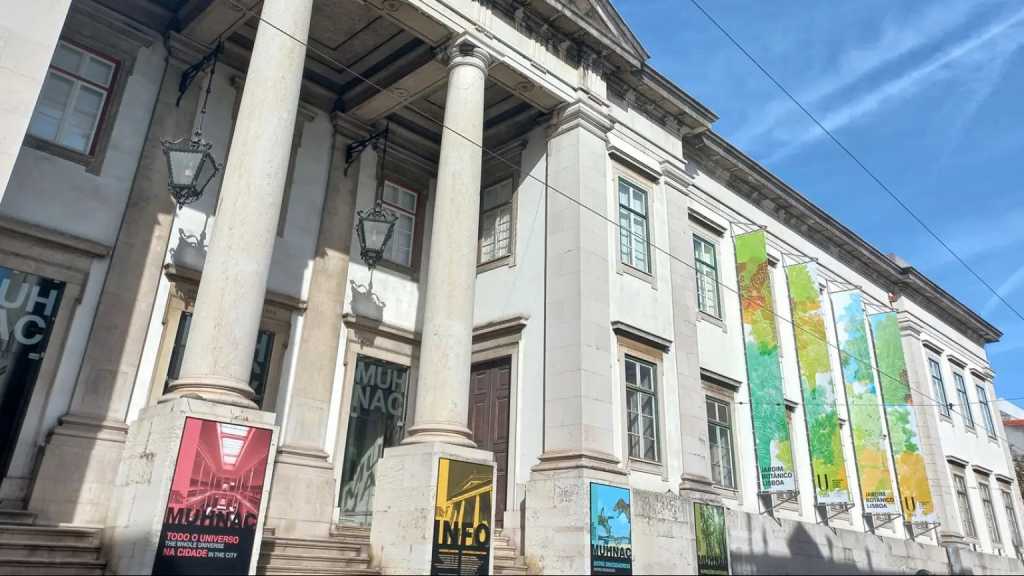
National Museum of Natural History and Science
MuseumThe National Museum of Natural History and Science -- MUHNAC, with a silent h -- is part of a Specialised Unit of the Central Services of the University of Lisbon called ‘Museums of the University of Lisbon/Institute of Tropical Scientific…
- Príncipe Real
- Museum

